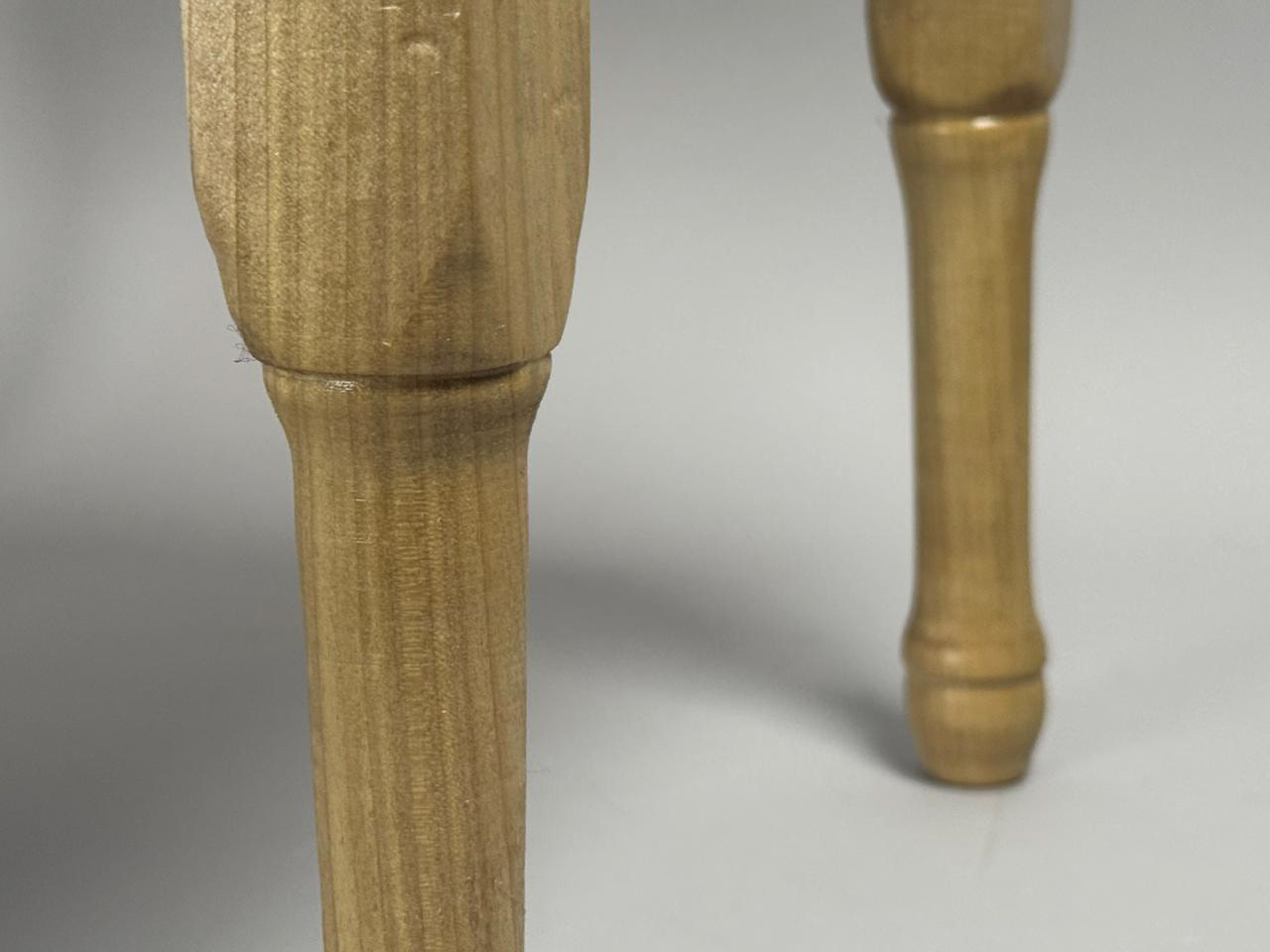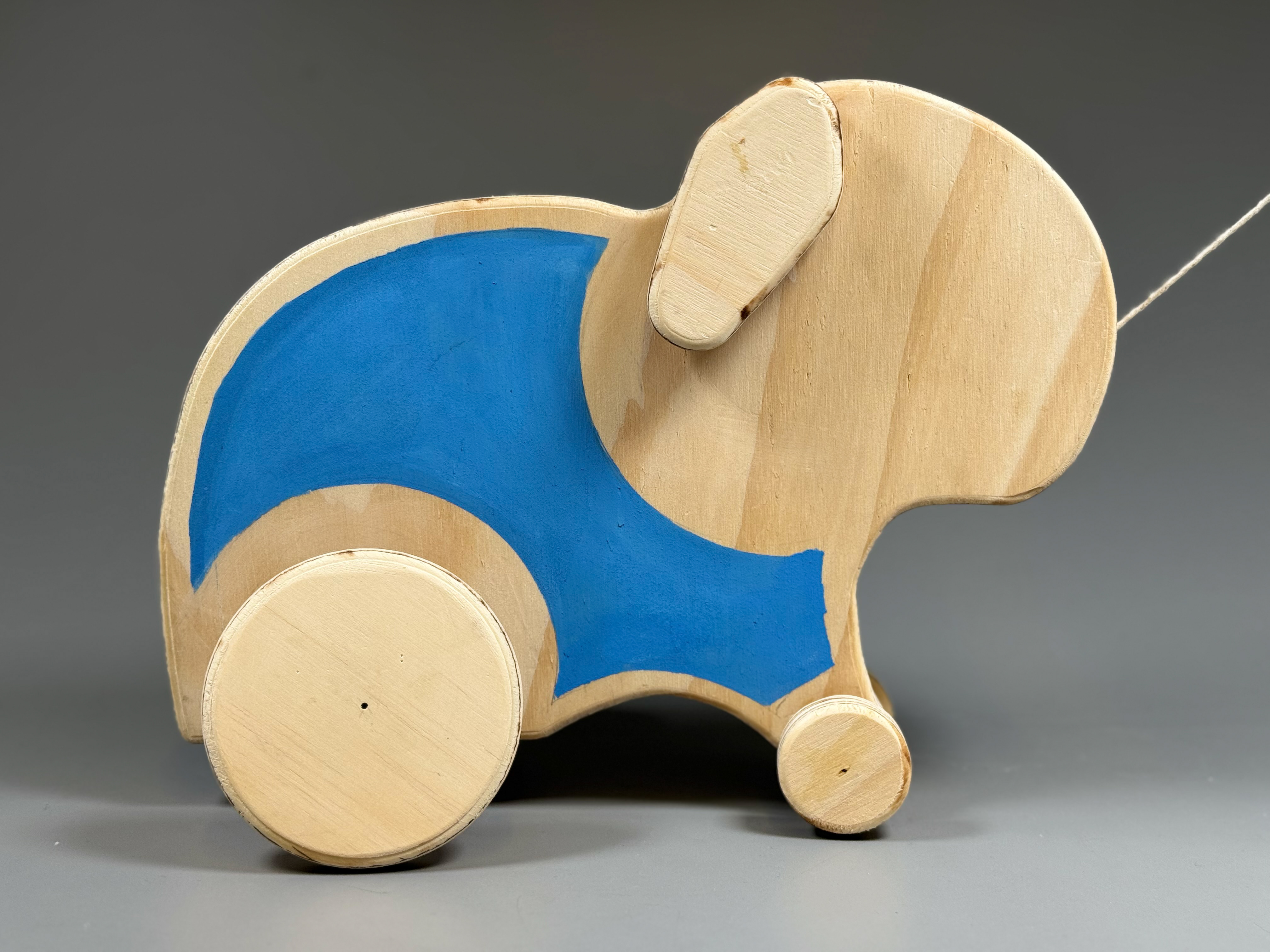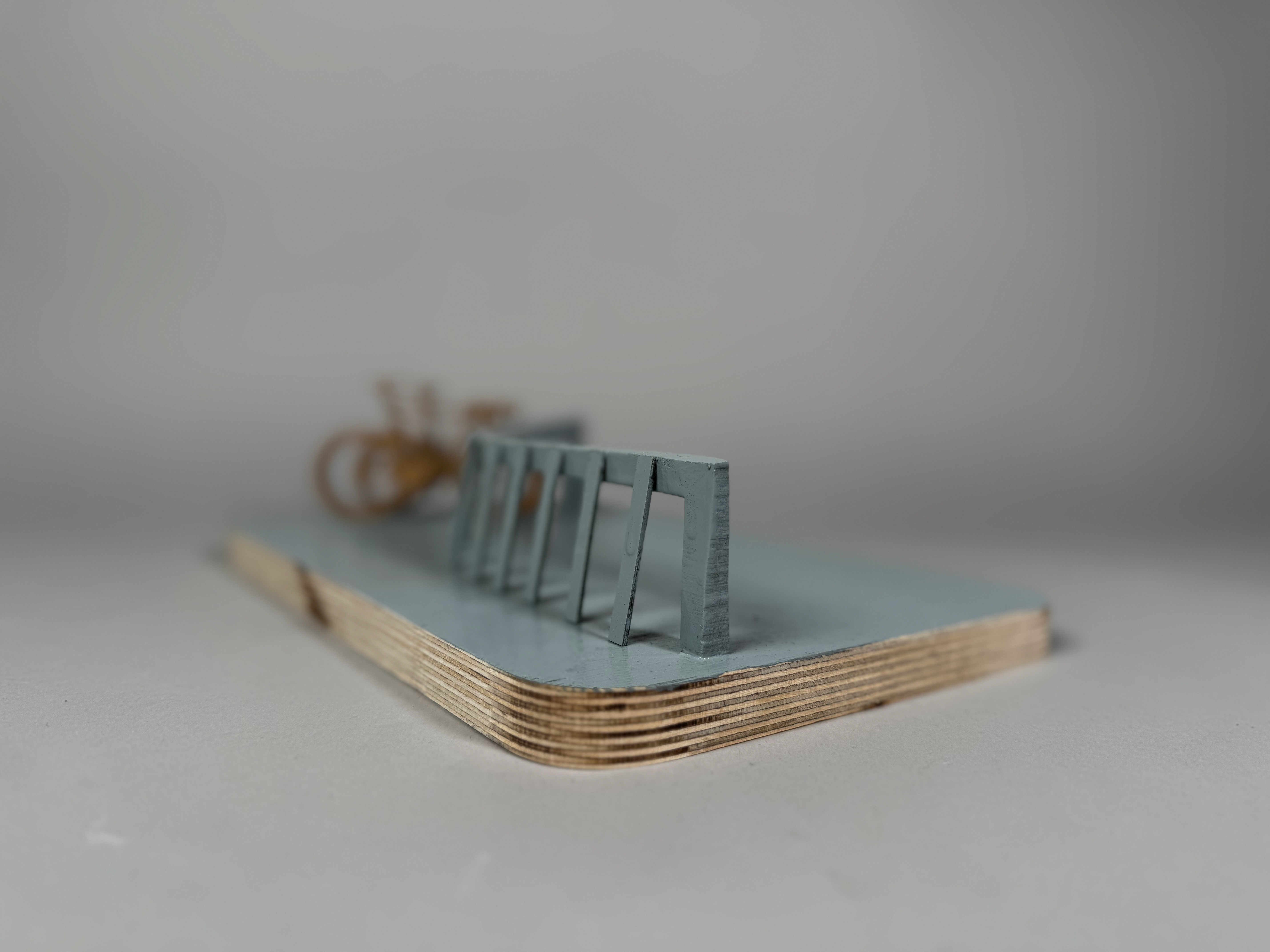Seating Assignment - To explore the idea of seating for adults using cross-cultural references with a form restriction of less than 1728 in^3.
The Chotpai is a casual seating solution for the Pakistani working class that subtly borrows form-making and design of rural Pakistani culture.
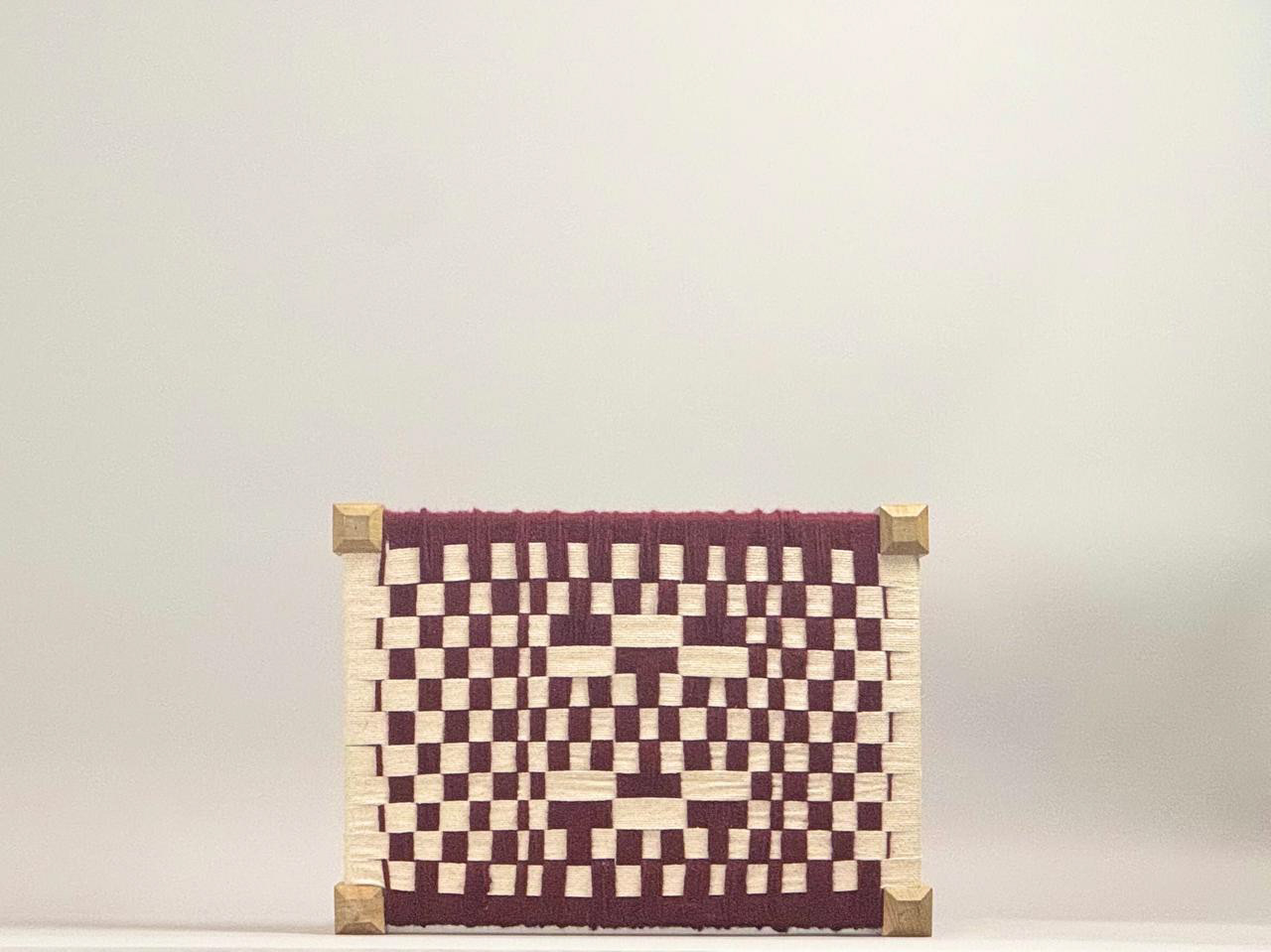
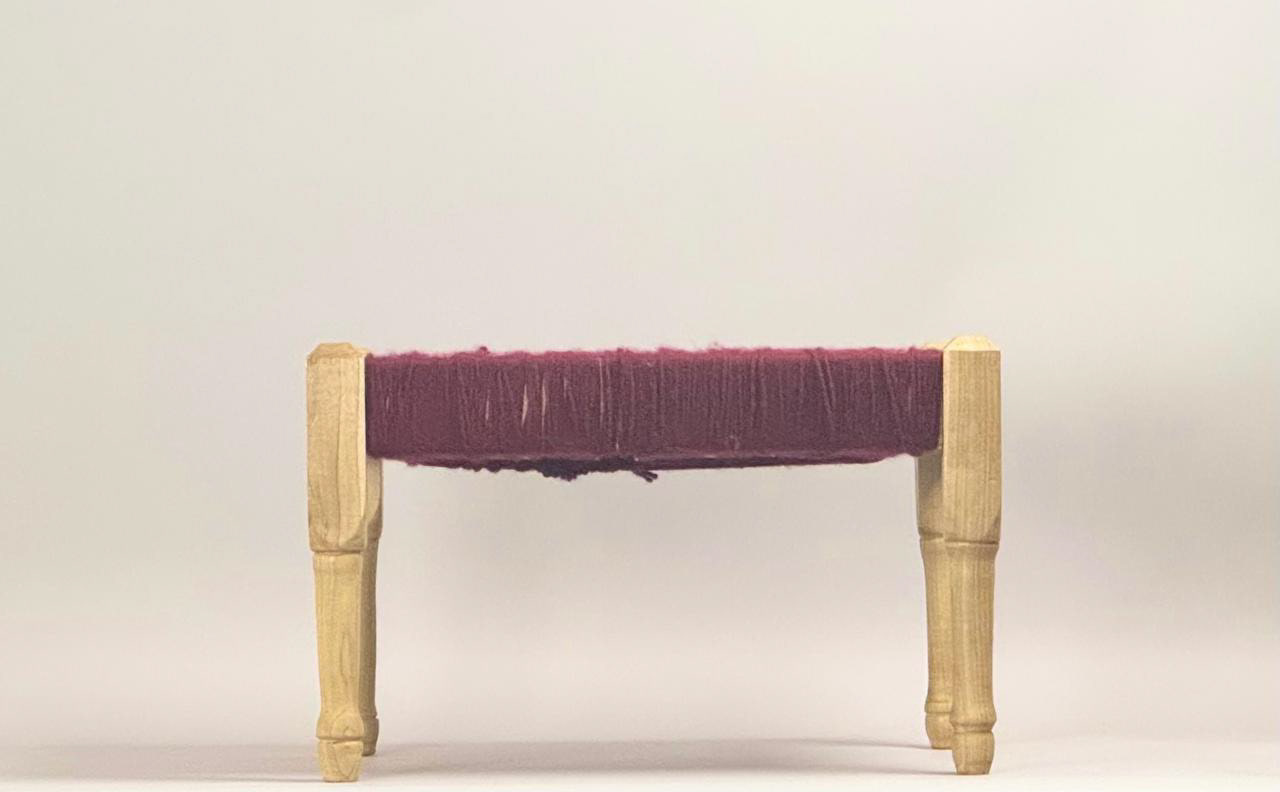
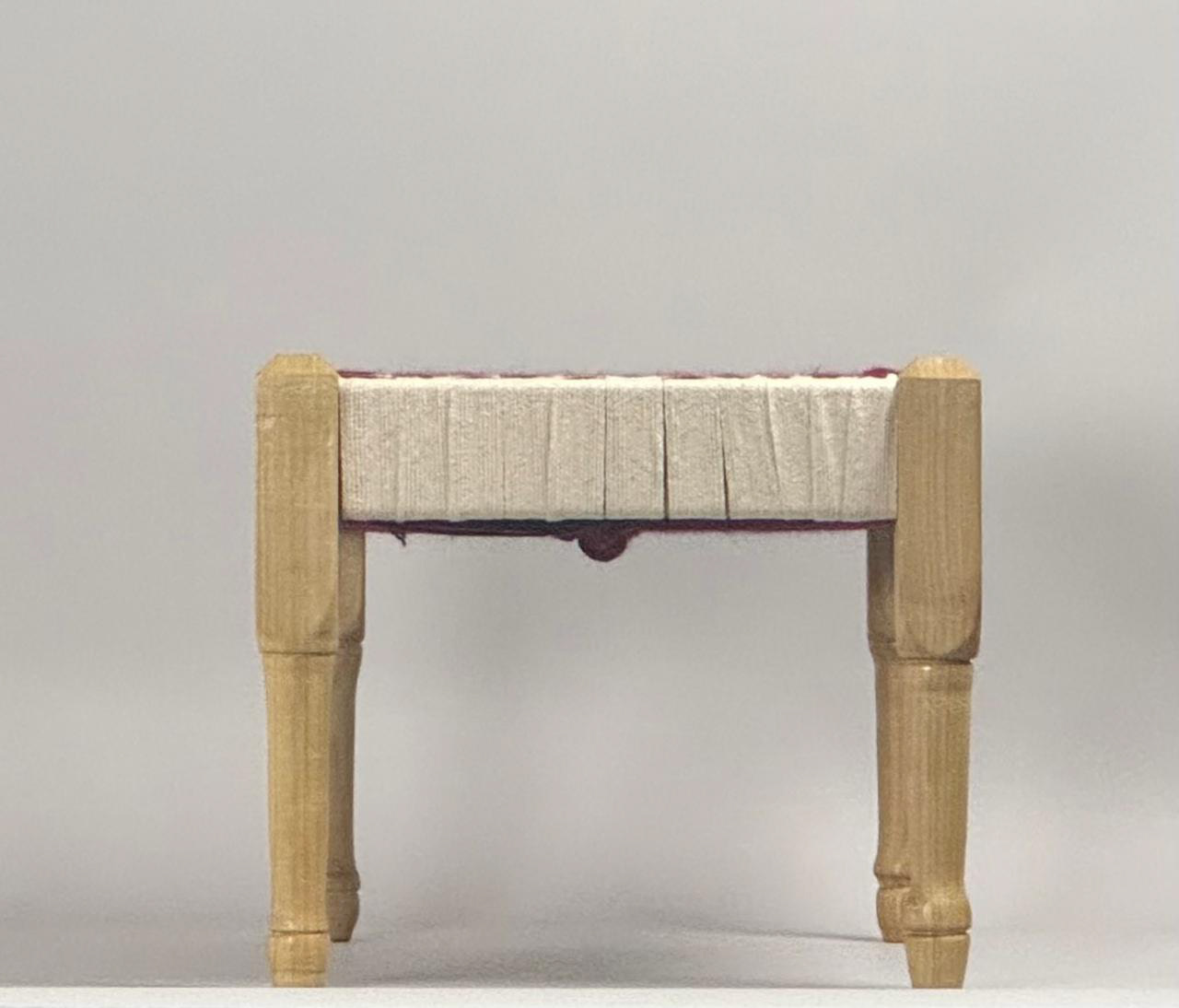
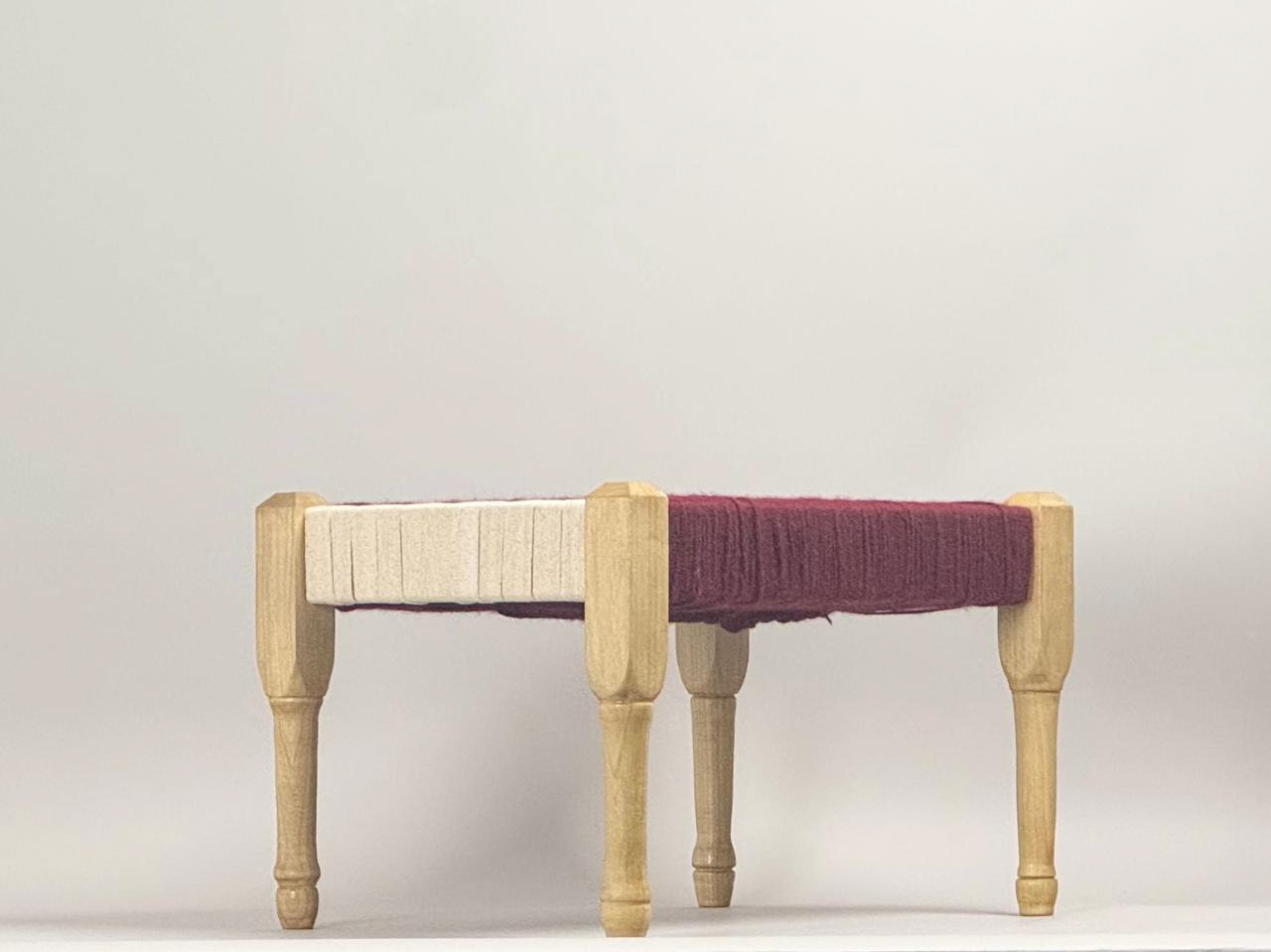
Profile View
- Width:- 15"
- Length:- 10"
- Elevation:- 11.5"
In Context
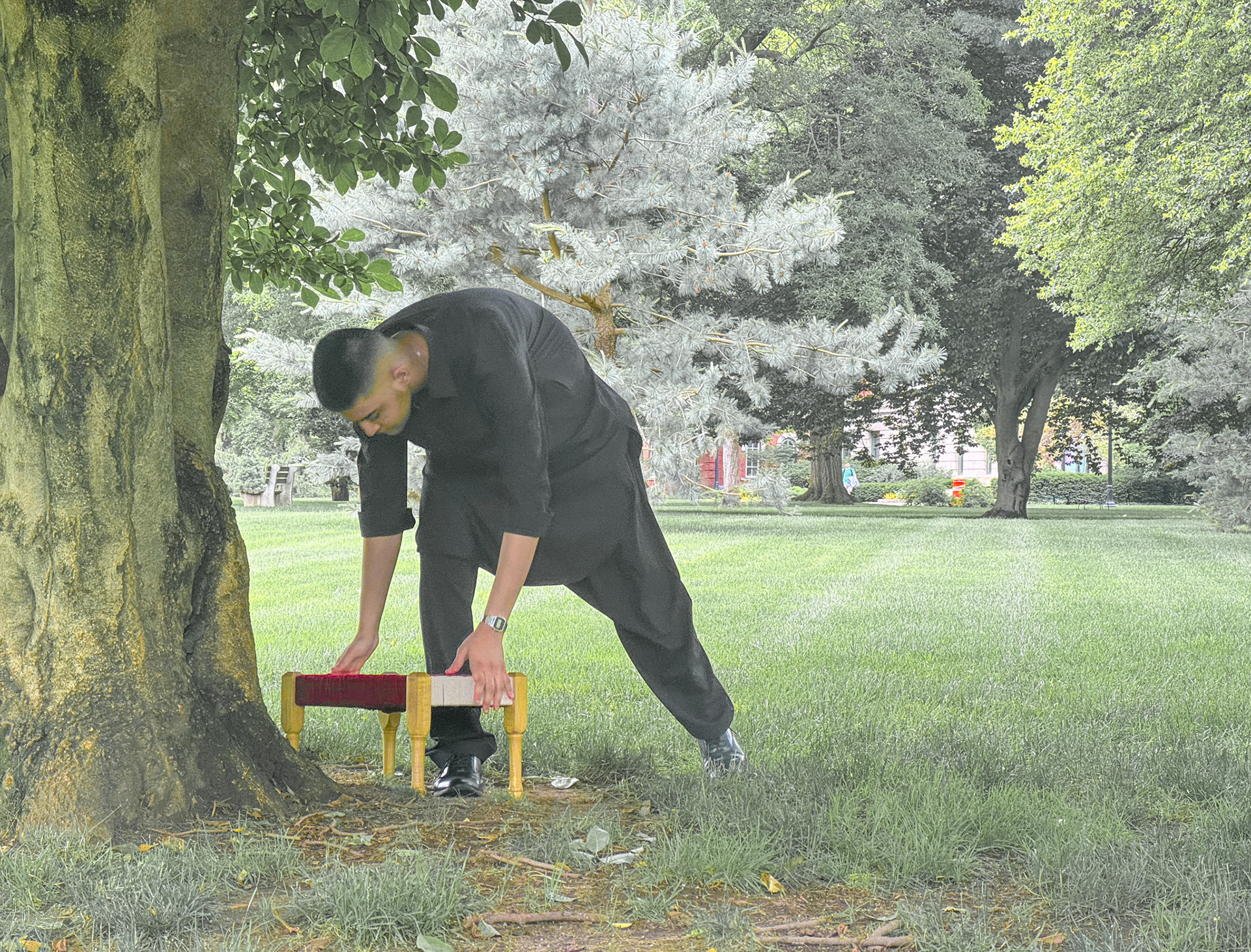
Setting down the Chotpai
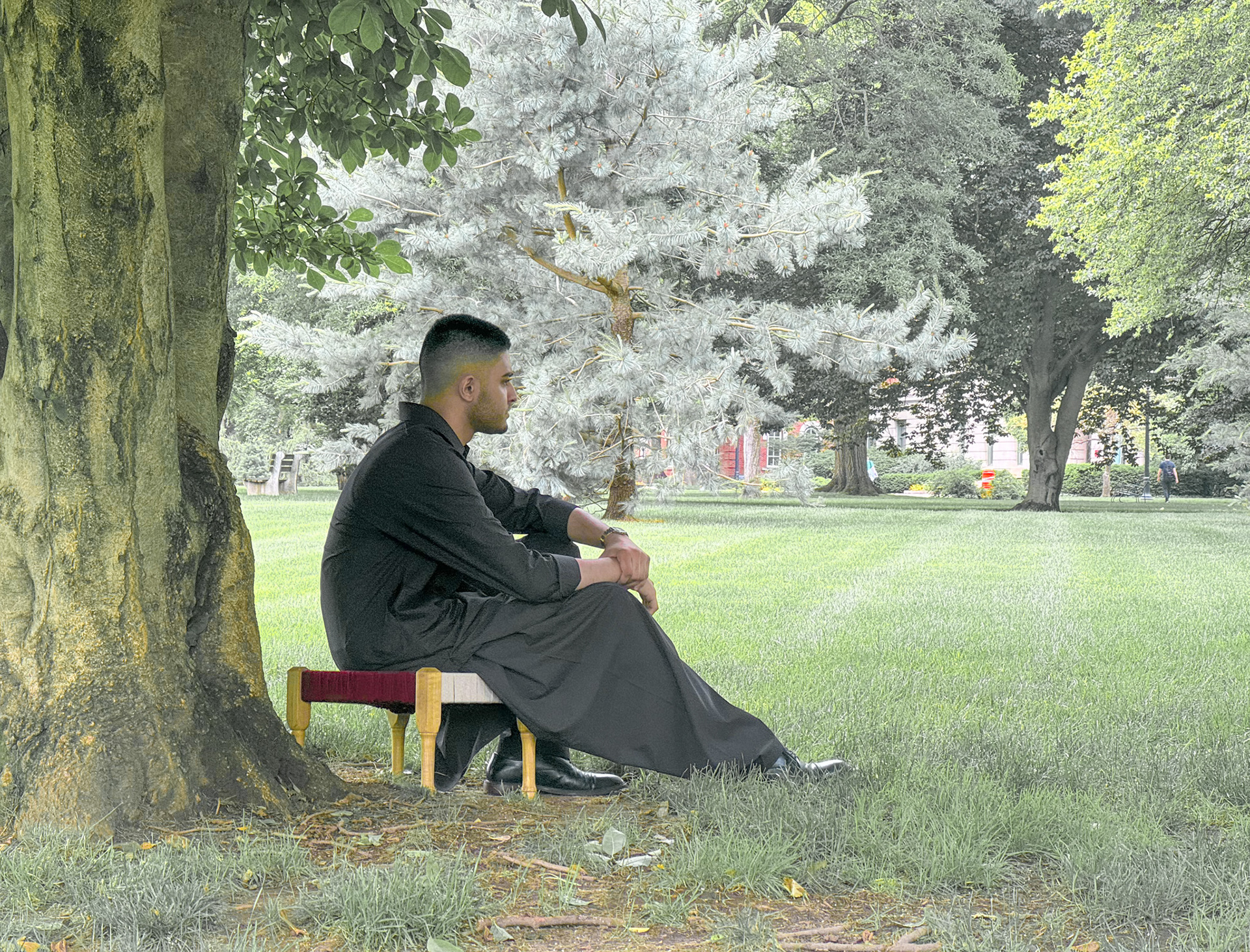
Enjoying free time on the Chotpai
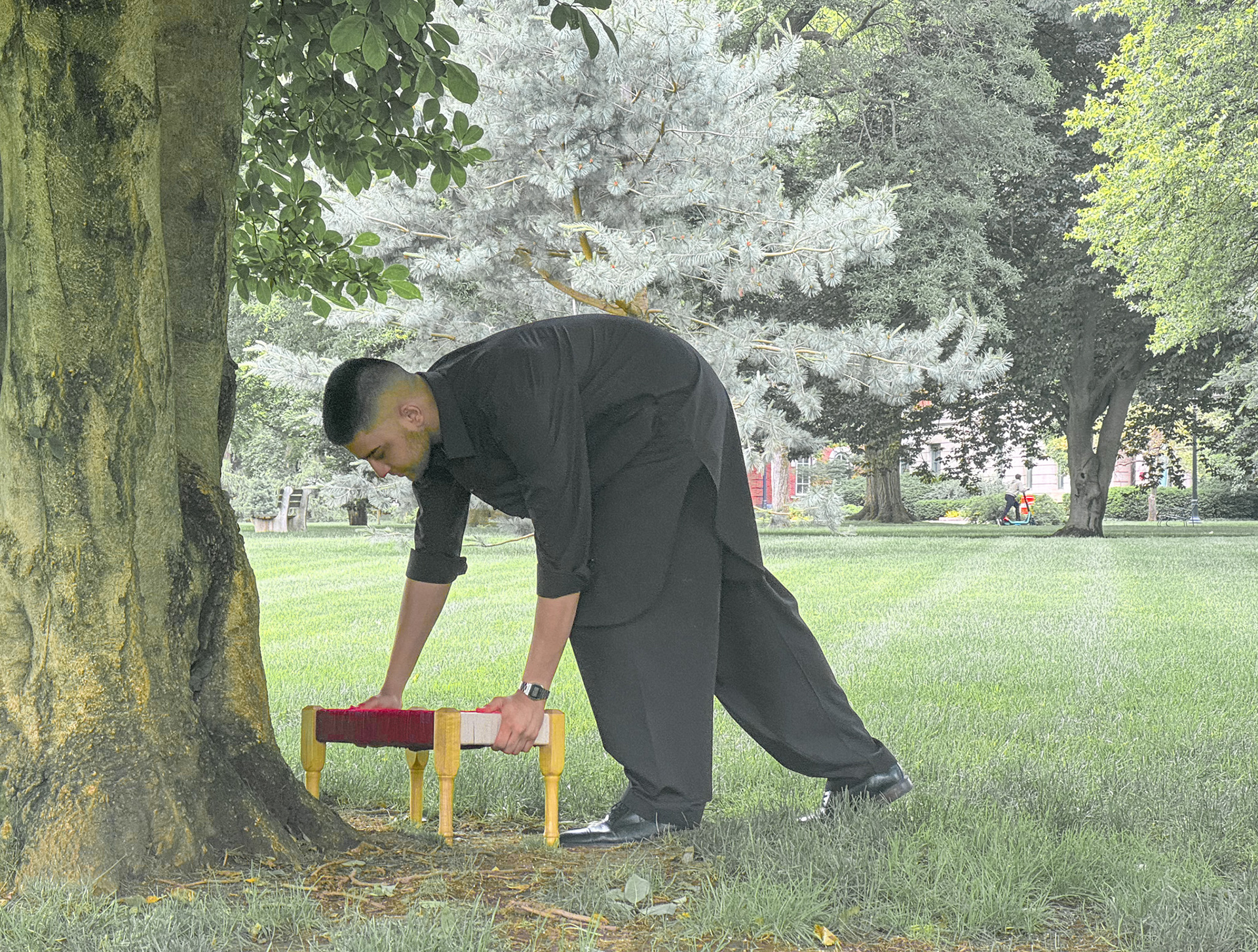
Picking up the Chotpai
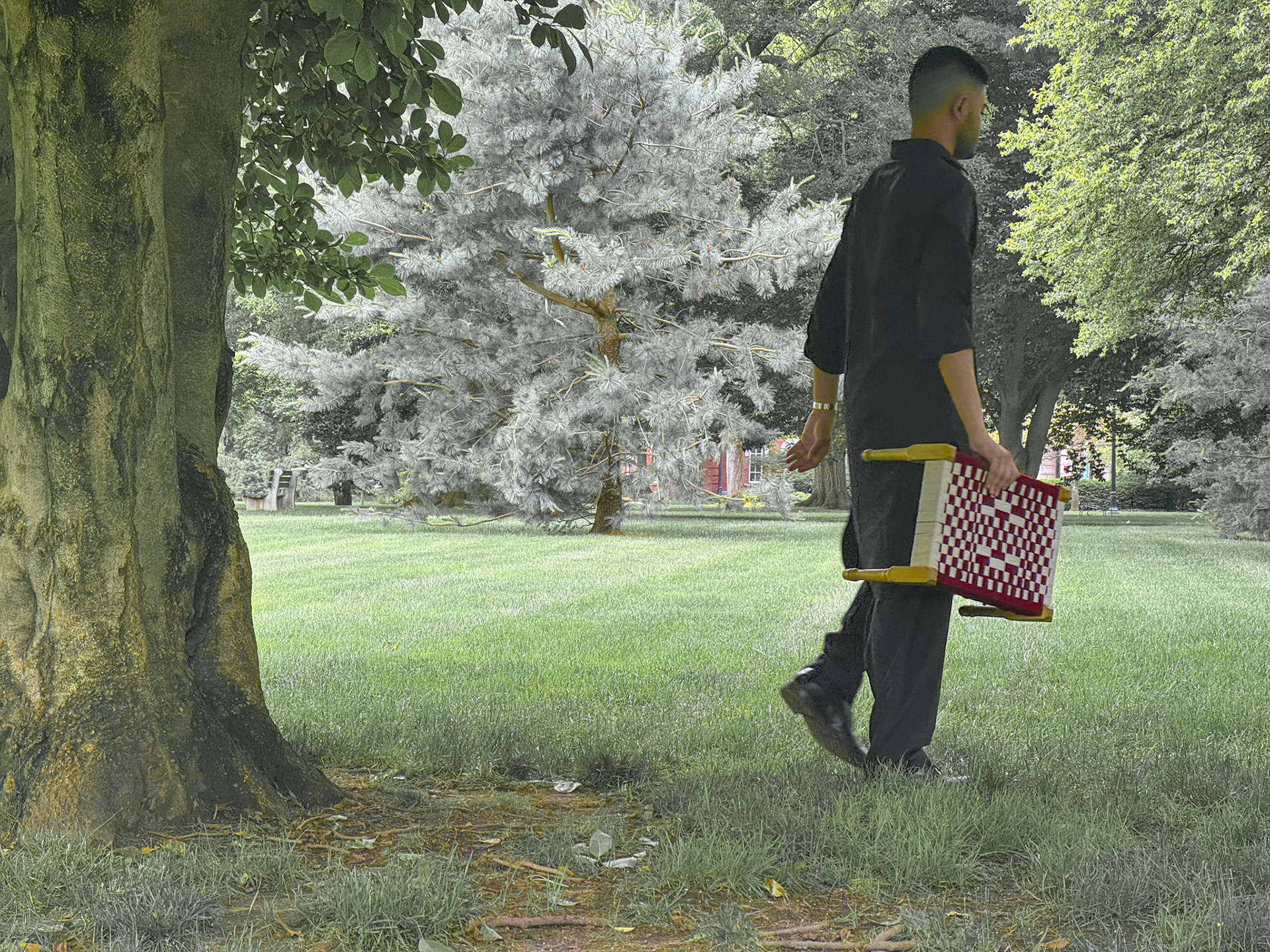
Carrying with ease
Process
Ideation
When ideating, I used various references from my life to guide the seating contexts (Religion, culture, and habits) and create the following design conjectures.
1. During mosque sermons, my lower back is forced upright without lumbar support. Sermon seat is a low real-estate solution that keeps the user alert/engaged and can be stowed away during prayer time.
2. A stool-like woven seat inspired by South Asian sleeping cots (Charpai). The mini Charpai is a lightweight solution for the Pakistani working class to use in their available time.
3. A lounge-like curved seat that is loosely inspired by the simple curvature of toilets. Designed to be a dedicated seating arrangement to use devices to deter their use in other areas, like the bedroom/bathroom.
I resolved to continue with the Mini-Charpai because of its cultural significance as well as my desire to support the Pakistani working class as much as possible.
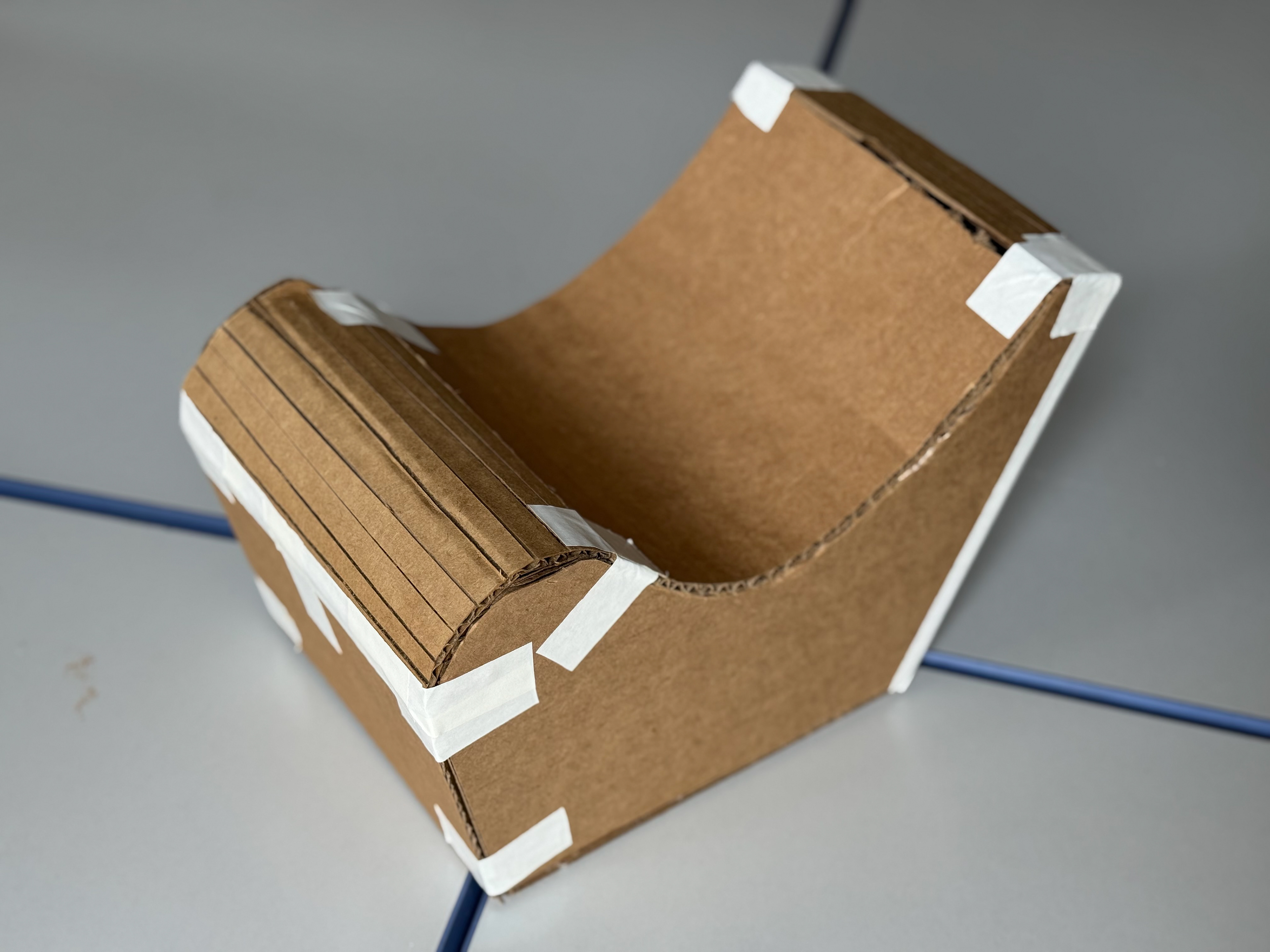
Idea 1 : Sermon Seat
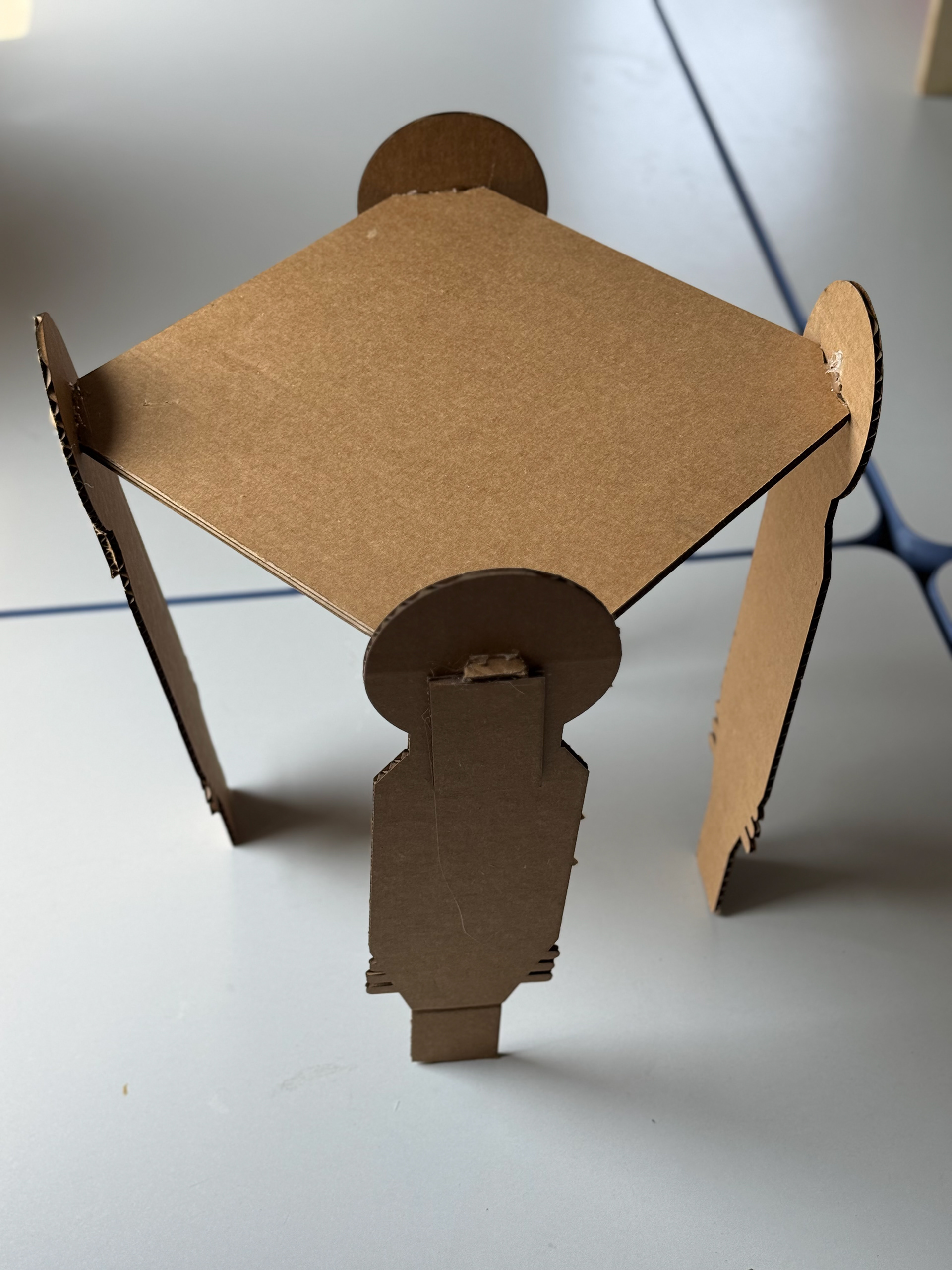
Idea 2: Mini Charpai
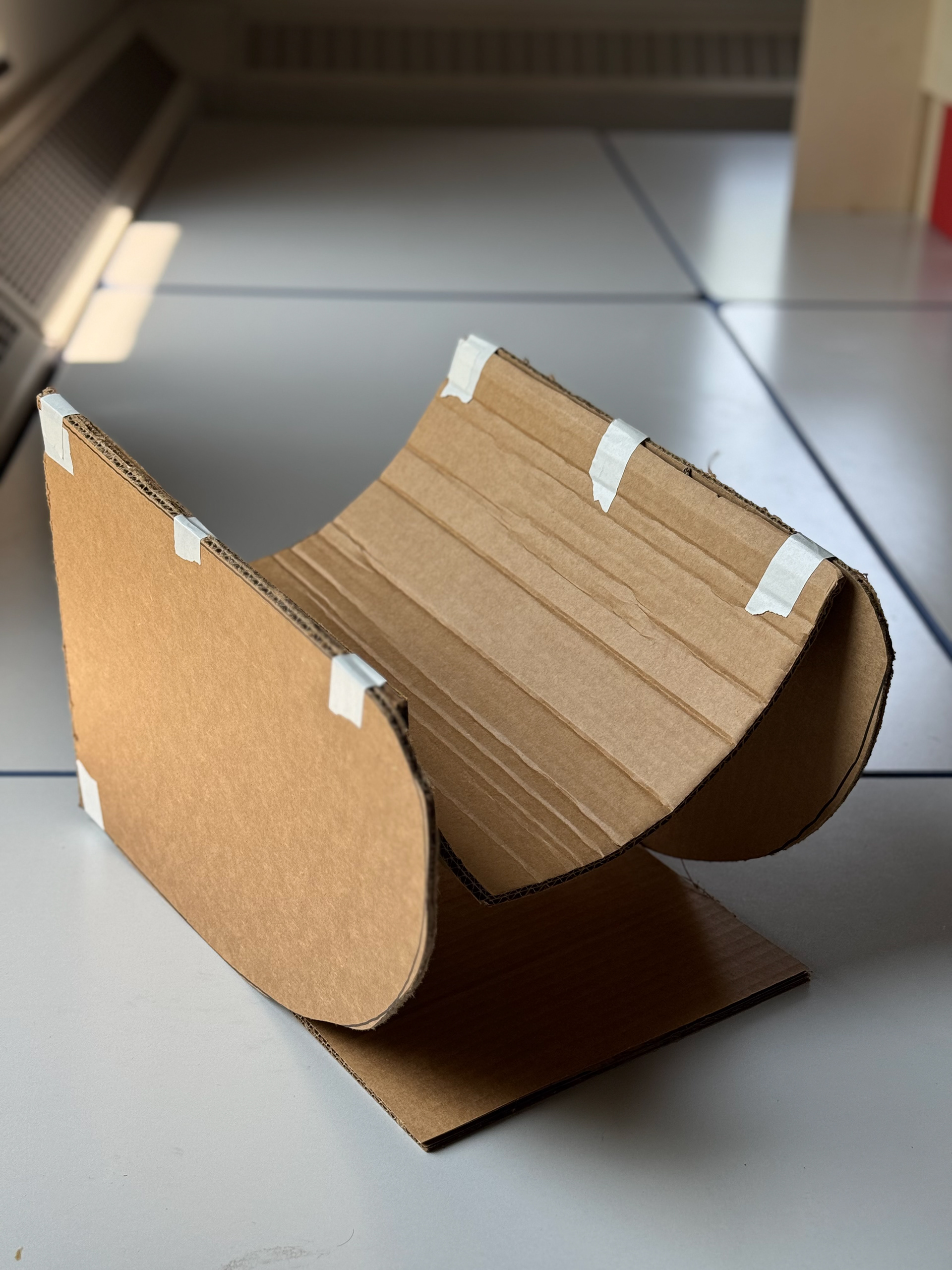
Idea 3: Curved Seat
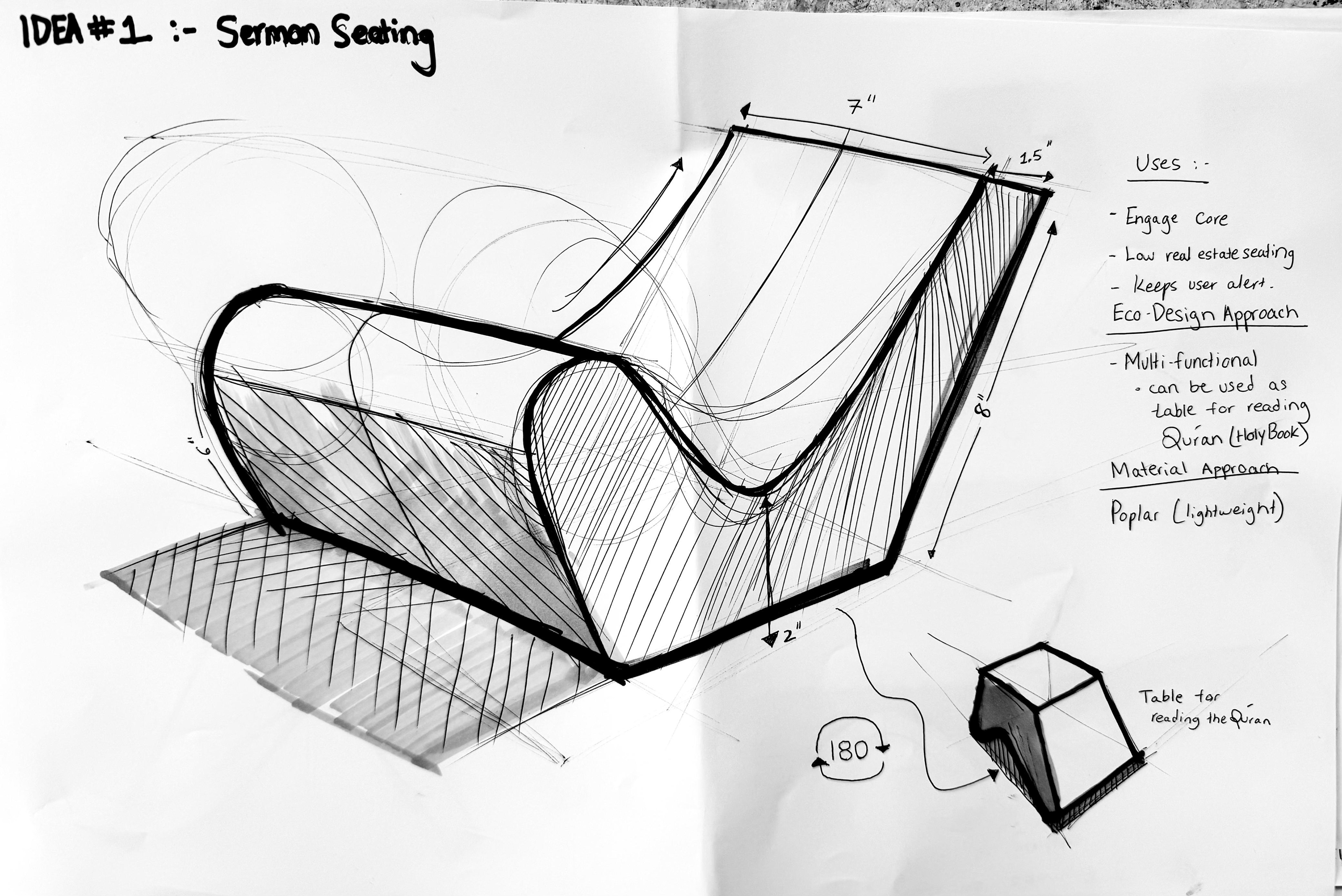
Sermon Seat Sketch
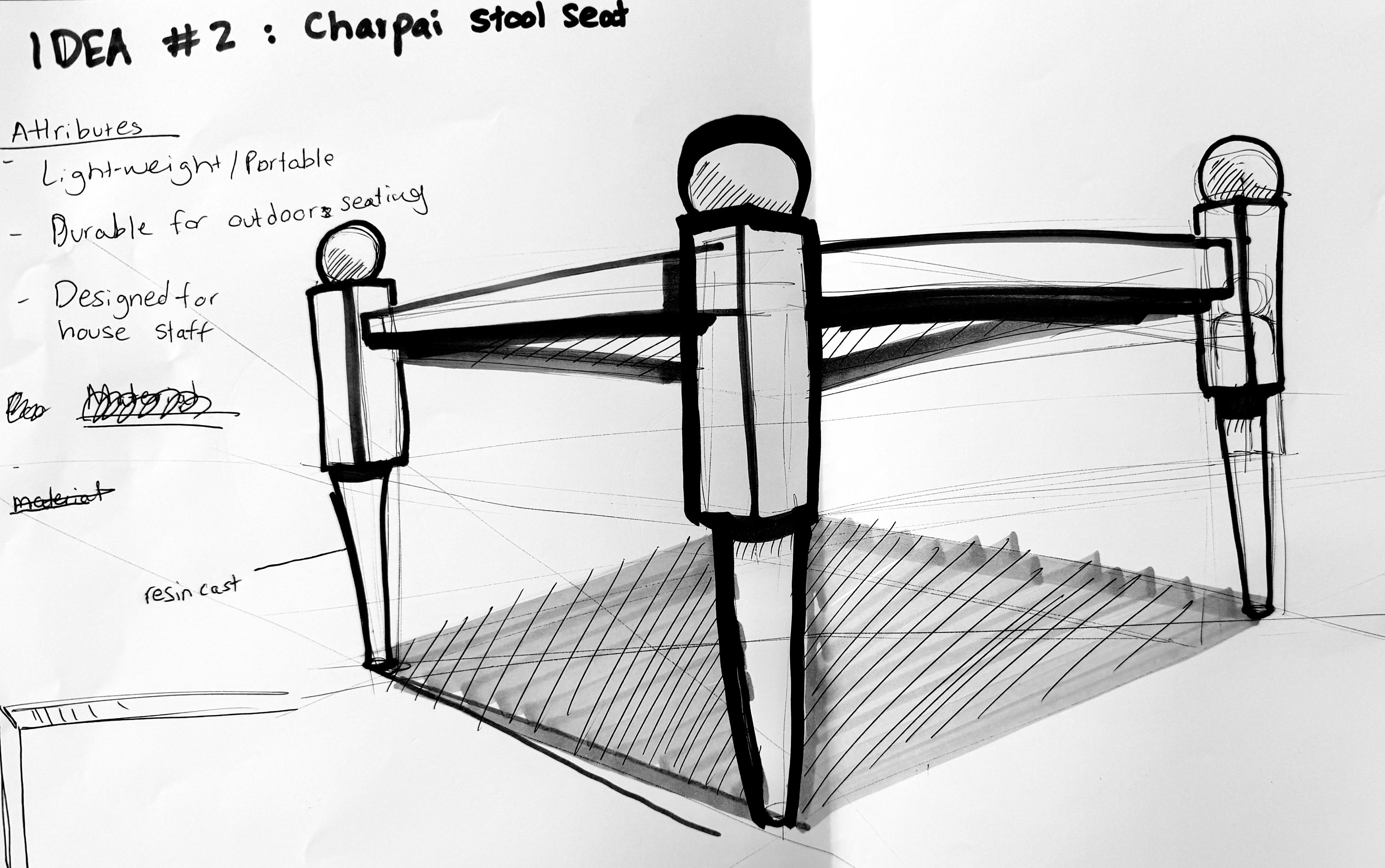
Mini Charpai Sketch
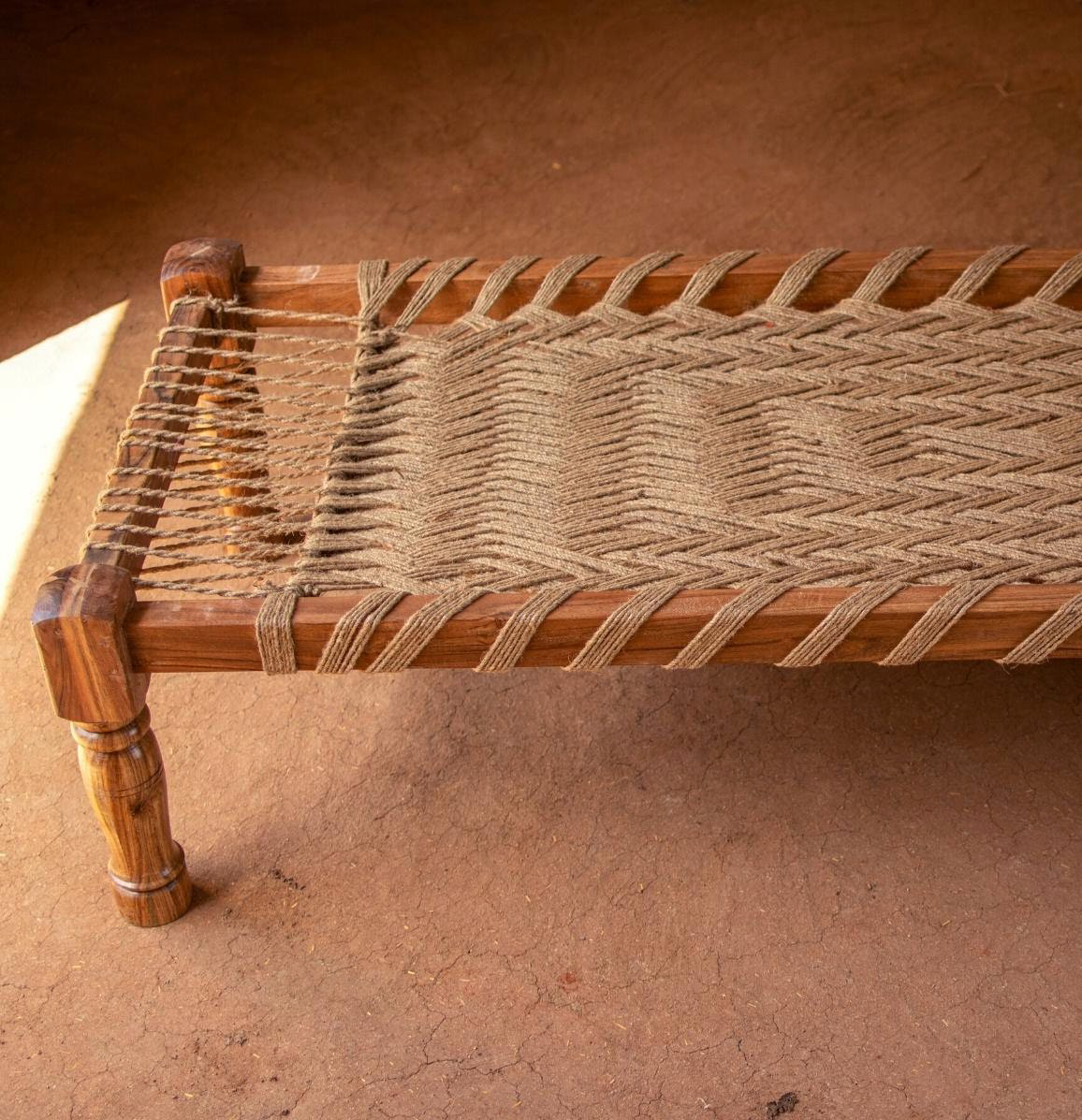
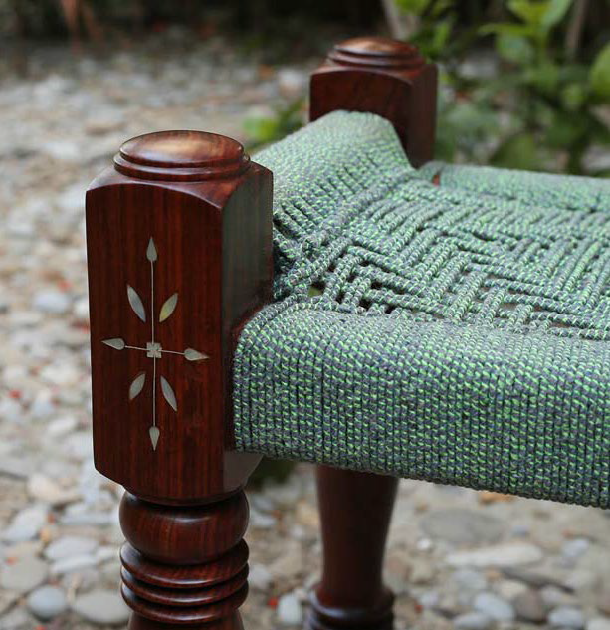
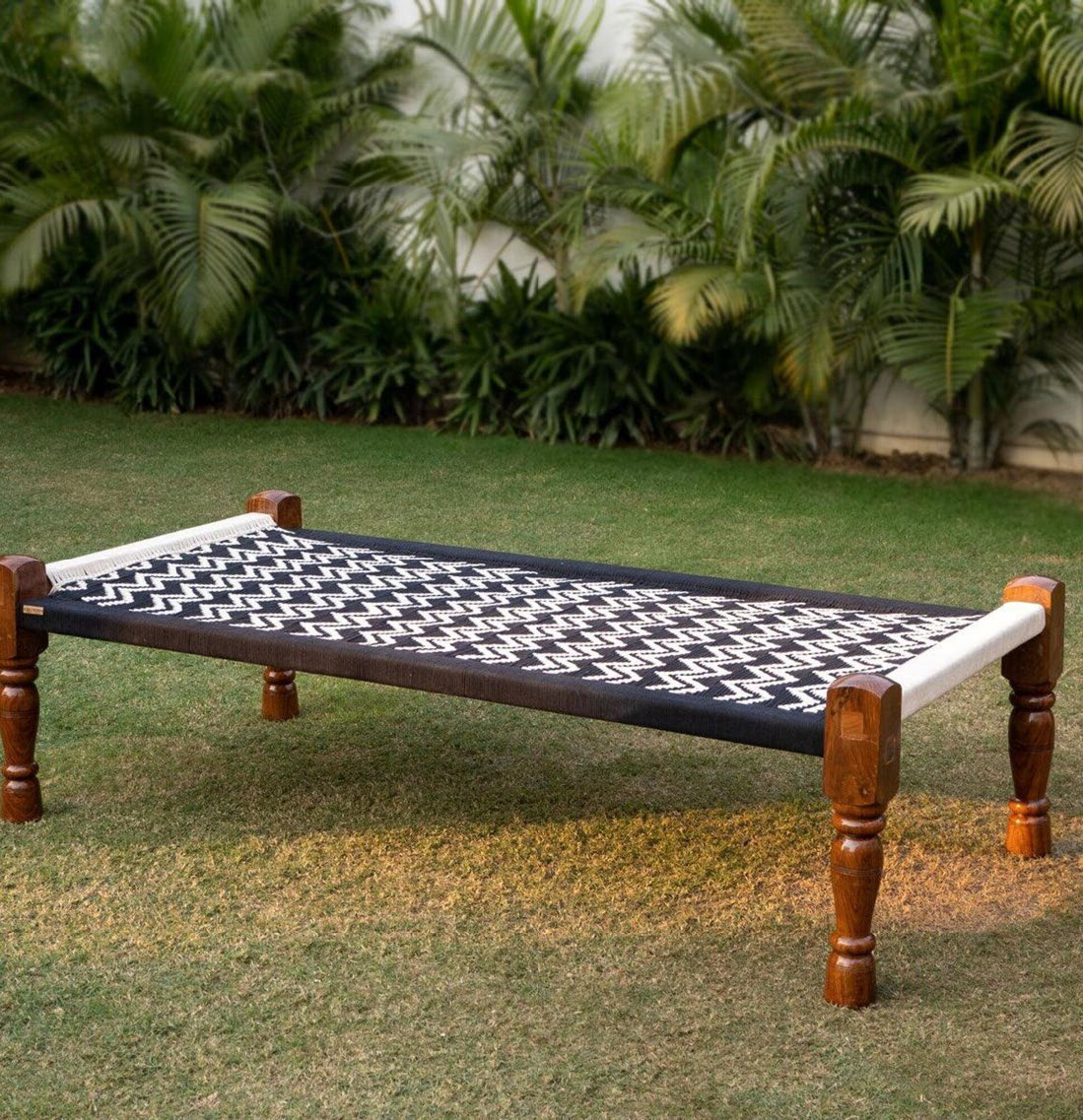
Charpai (Four-Legged)
A traditional sleeping/lounging solution in South Asia.
Design Thinking - User and Context
Shamshad (wearing white) is a member of our house staff who works outside, and his responsibilities include gardening, driving, and guarding the house.
Observing Shamshad through the years, I learned that he usually sits in gardens and socializes with people in our neighborhood in his free time. His seating solutions are improvised with flowerbeds or small rocks. I have also observed that Shamshad's resting/lounging solution is a charpai, which is lightweight and well-ventilated. Shamshad says the charpai has too much real estate and "setting it outside could give passersby the wrong idea".
I used this information to inform a simple seating solution that borrows from his existing furniture while addressing his concerns. I set out to create a dedicated seat that the working class, such as Shamshad, could use in their available time.
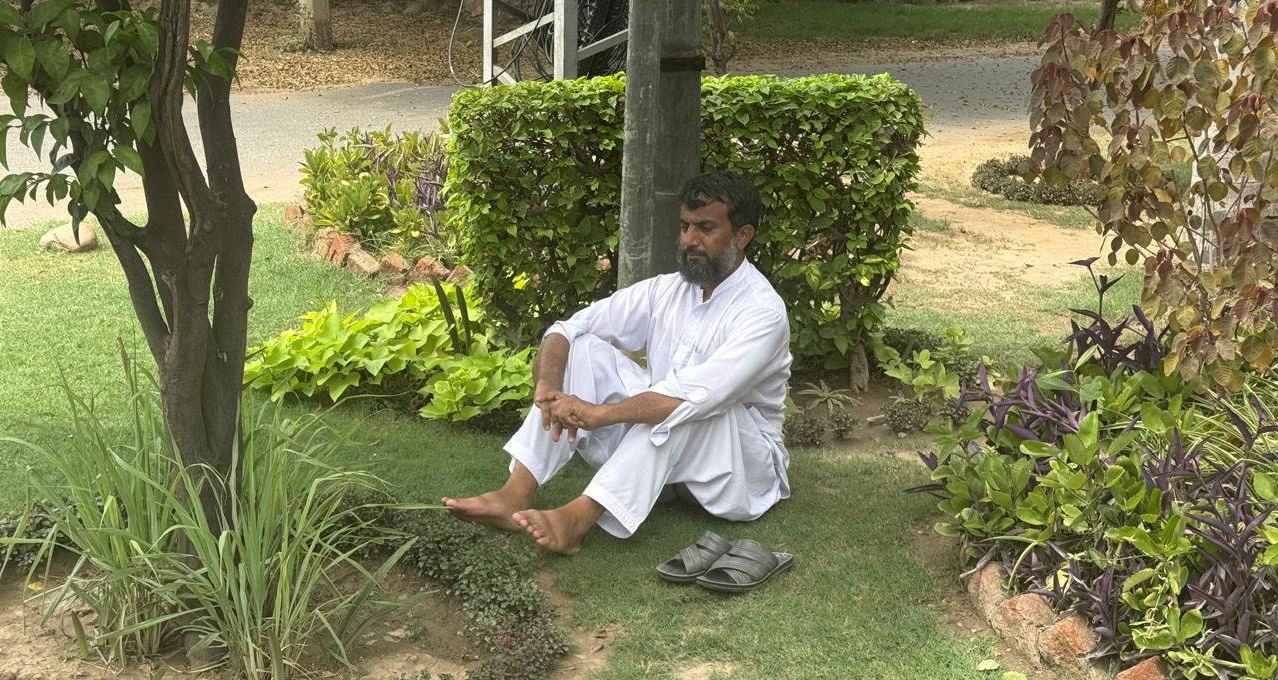
Shamshad in the garden
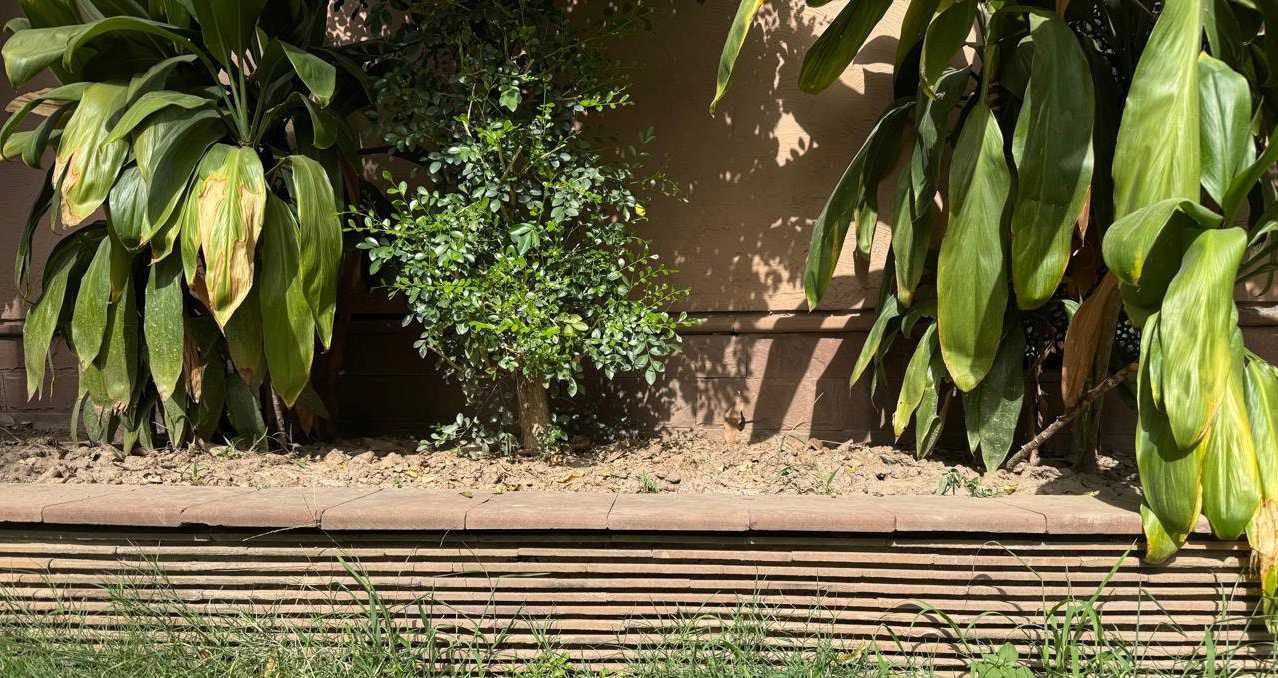
Flowerbed
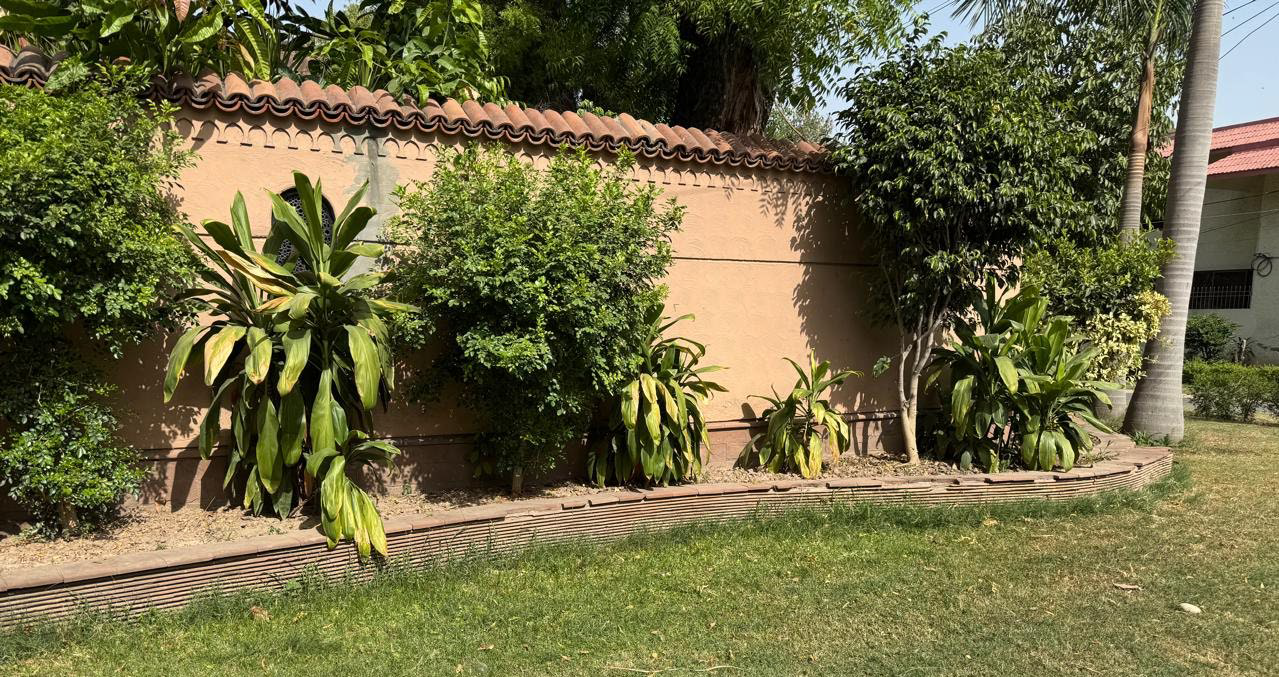
Flowerbed
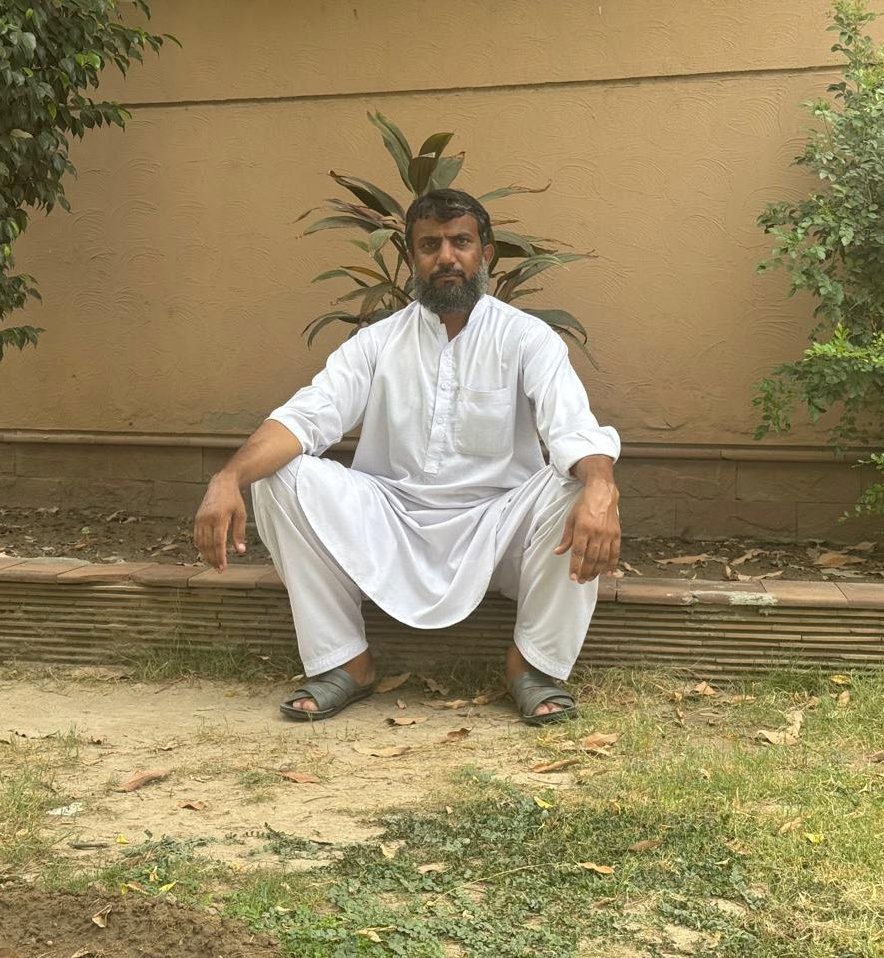
Shamshad's usual seating spot
Form Sketching
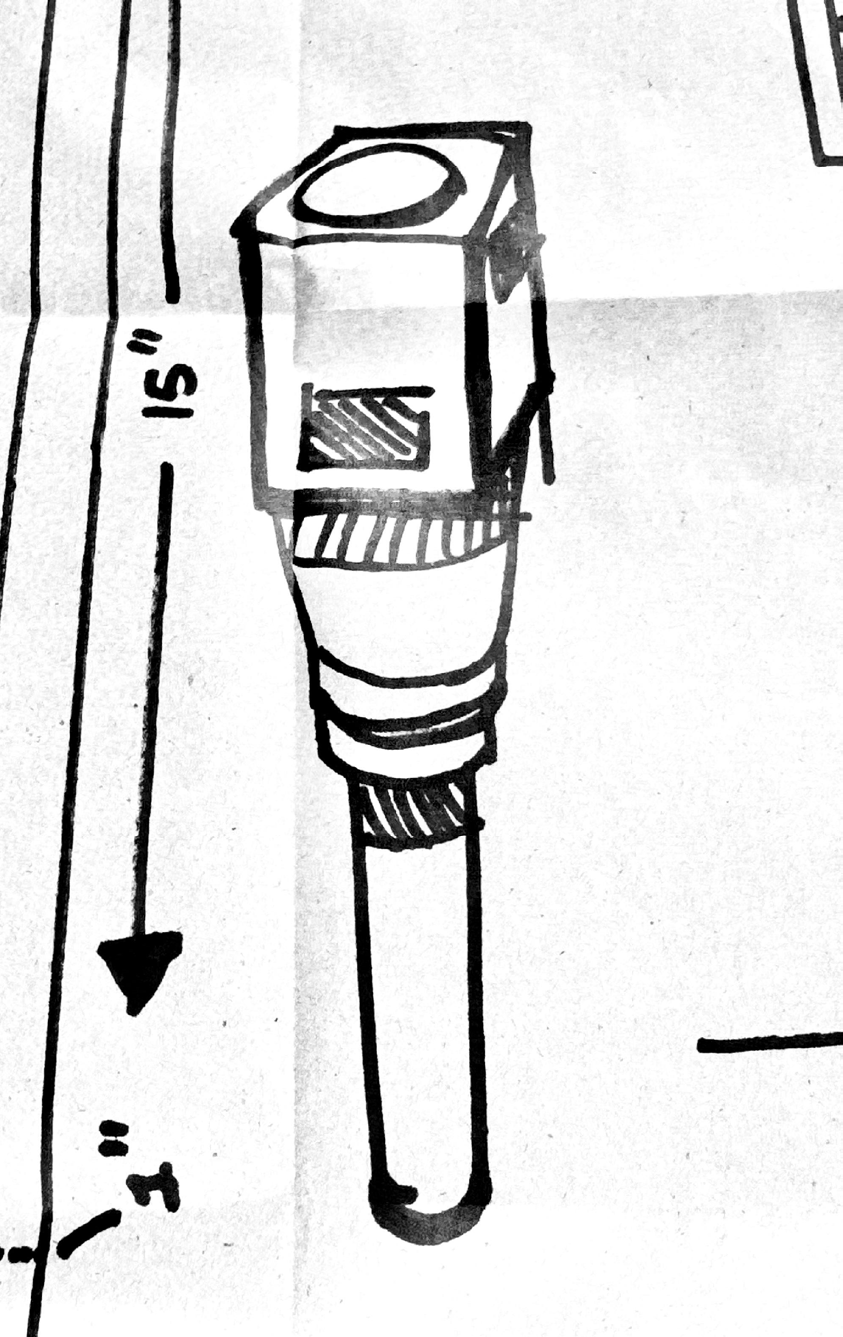
Leg sketch
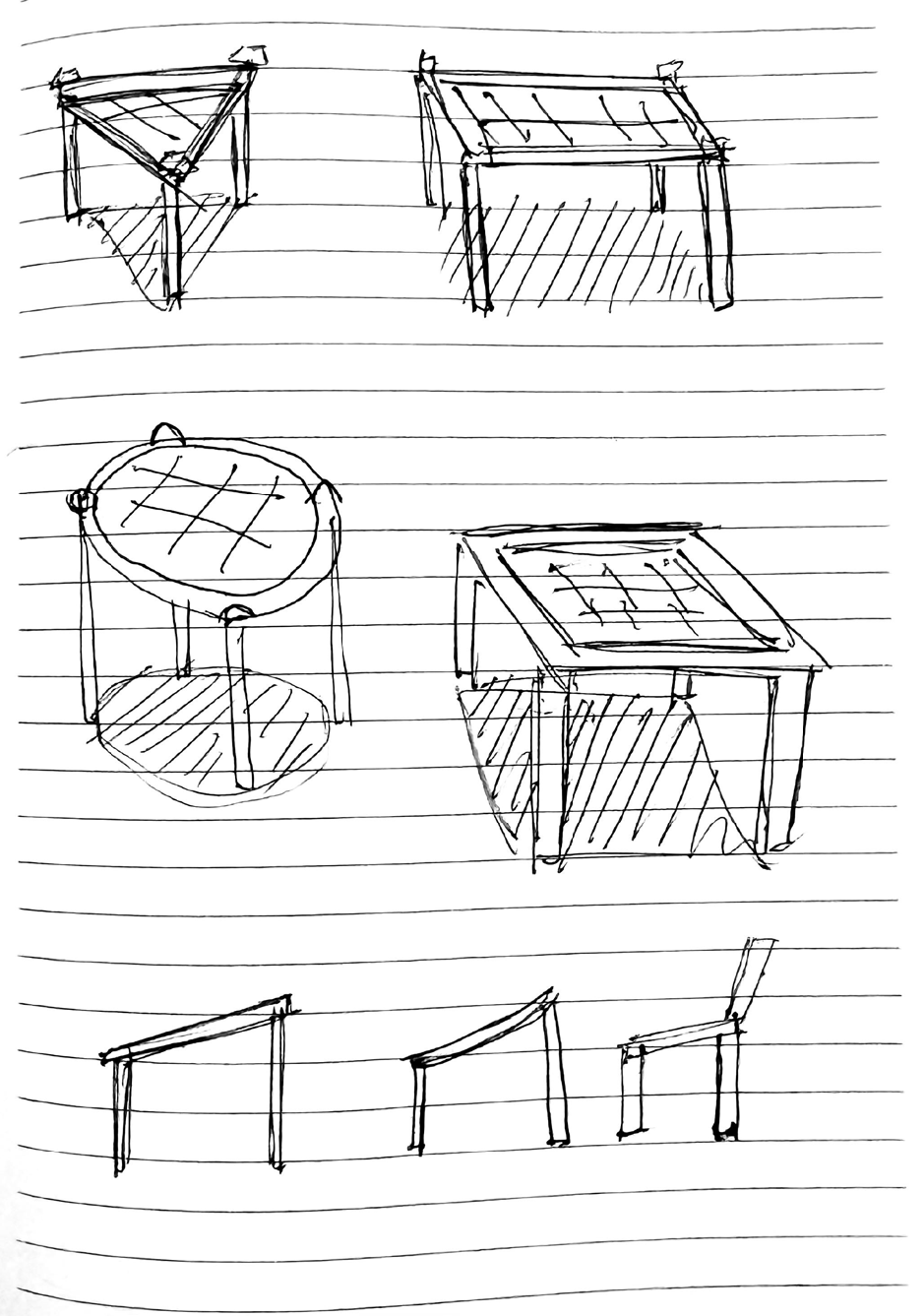
Rapid form exploration
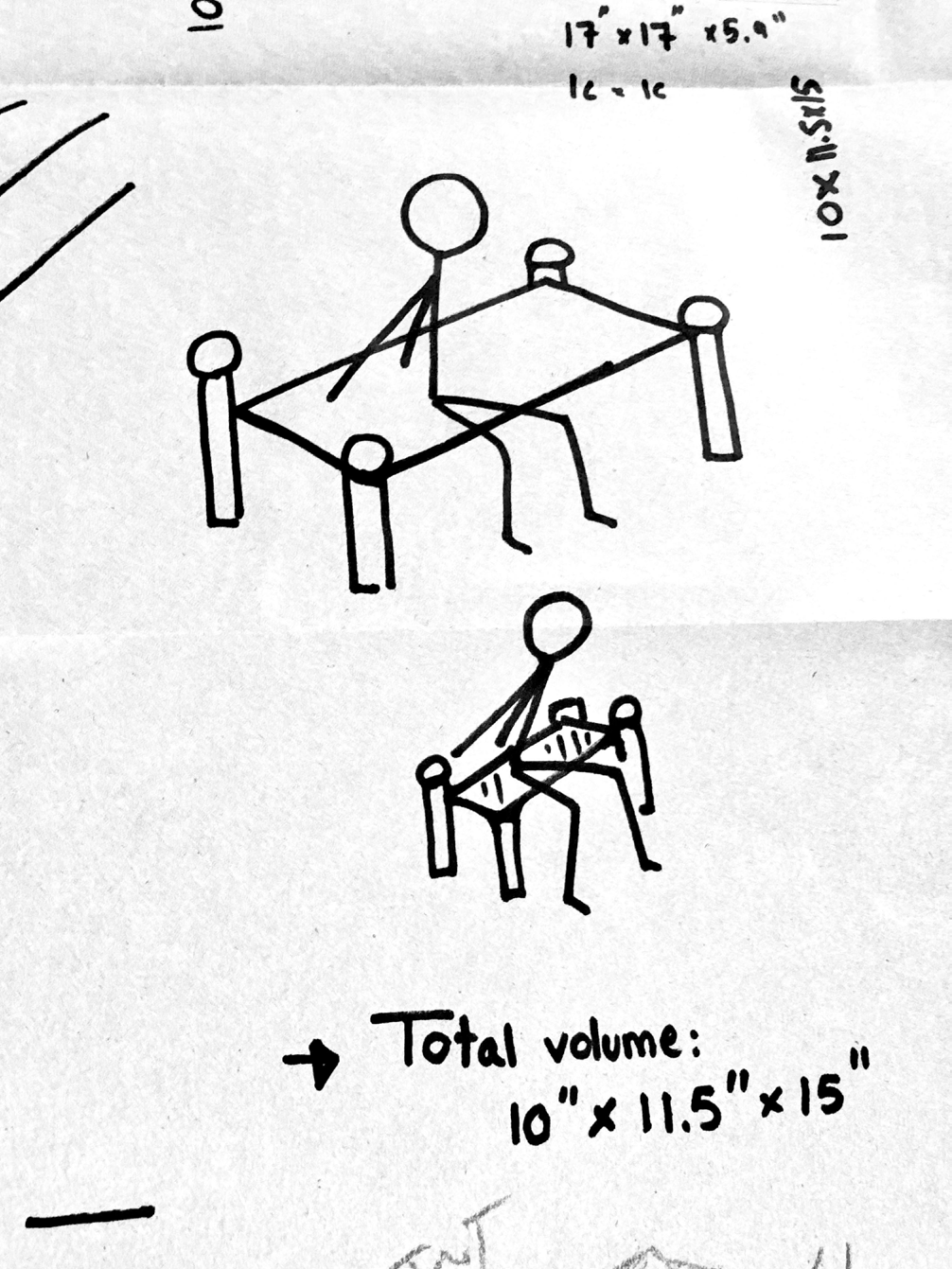
In Use doodle
Form Development / Iteration
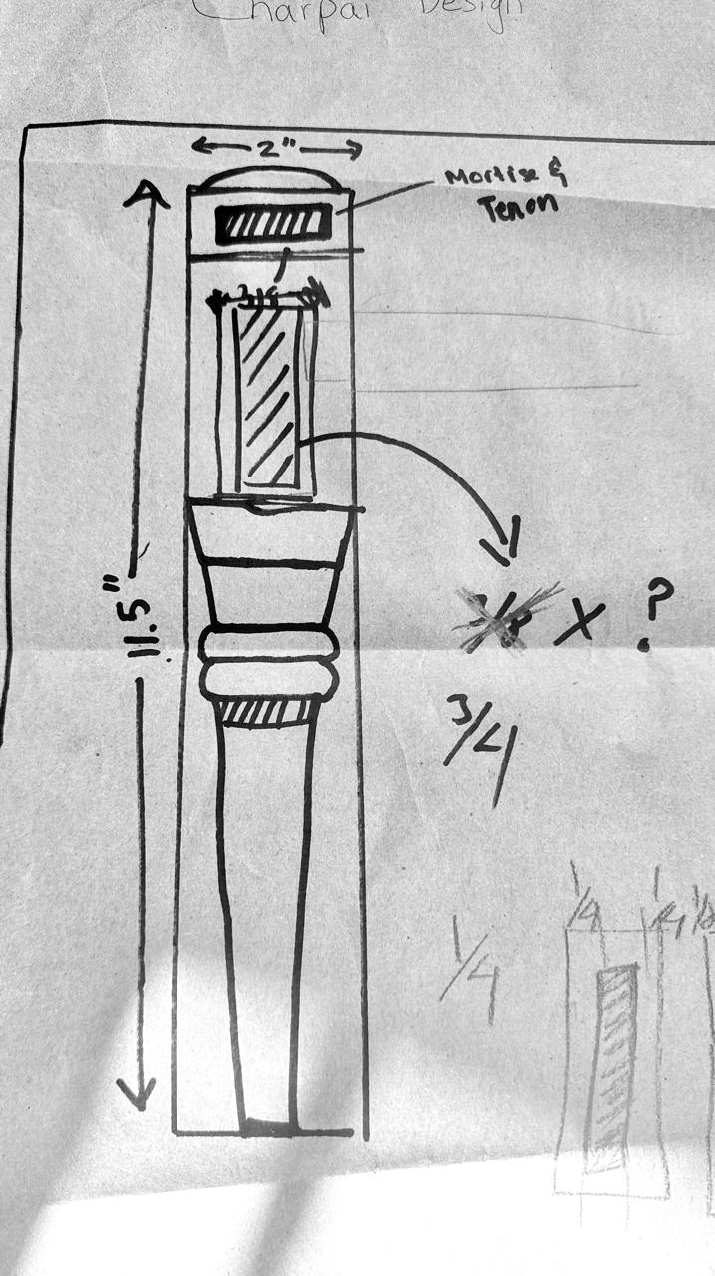
Leg Sketch
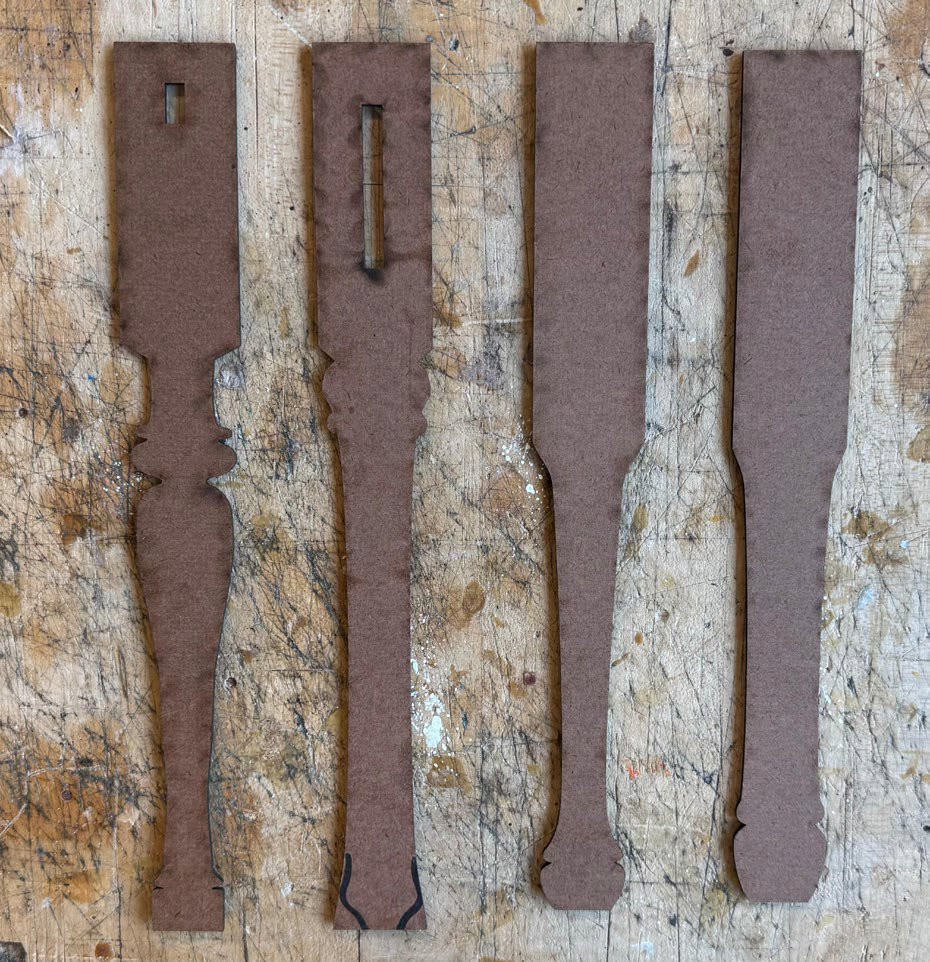
Leg Profiles
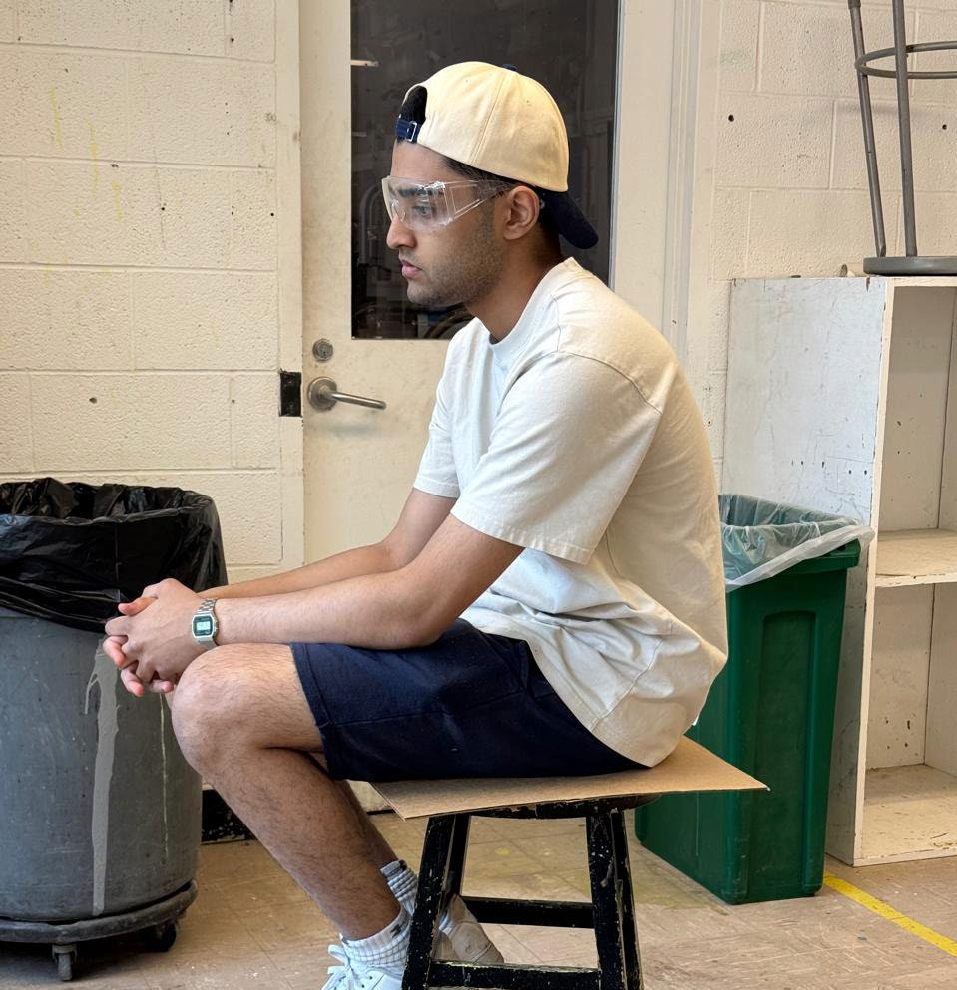
Seat Dimension Testing (18"x18")
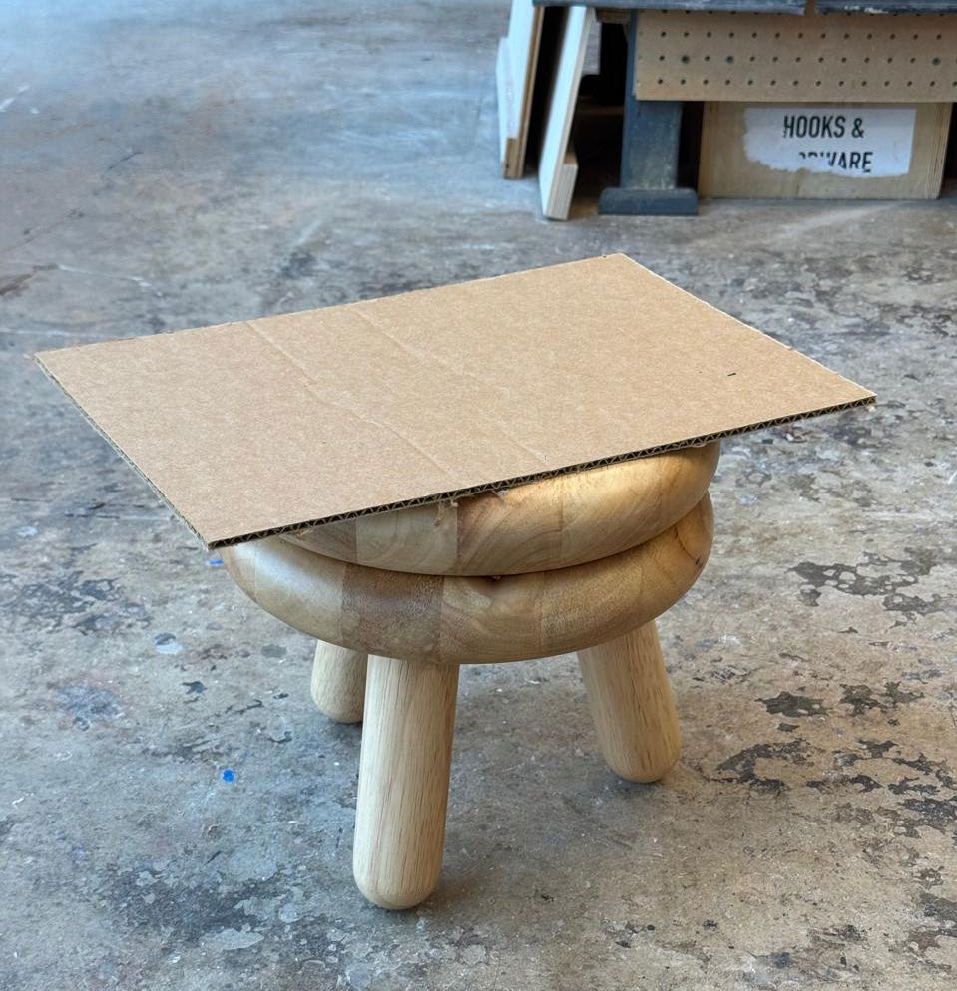
Seat Dimension Testing (10"x15")
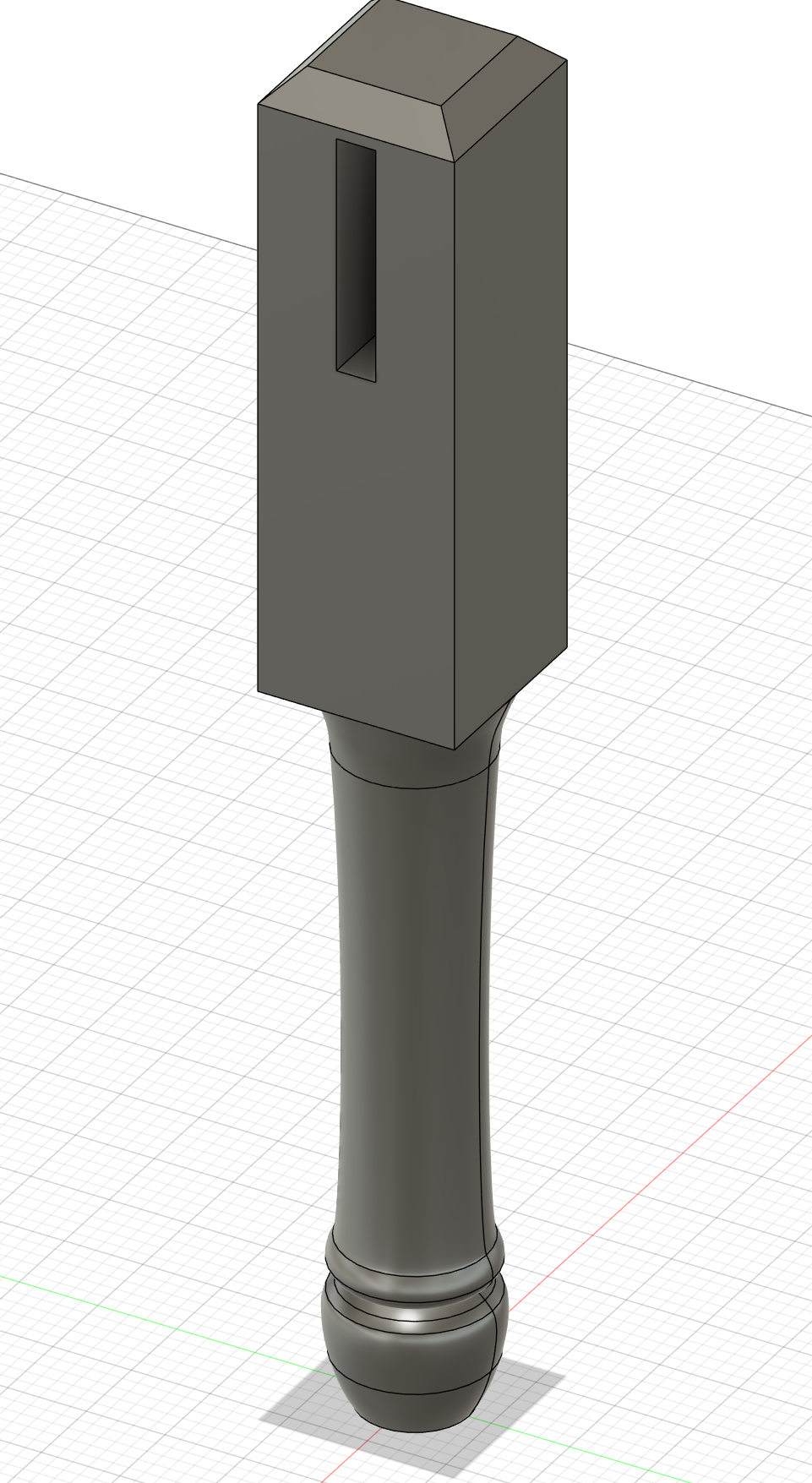
CAD Model
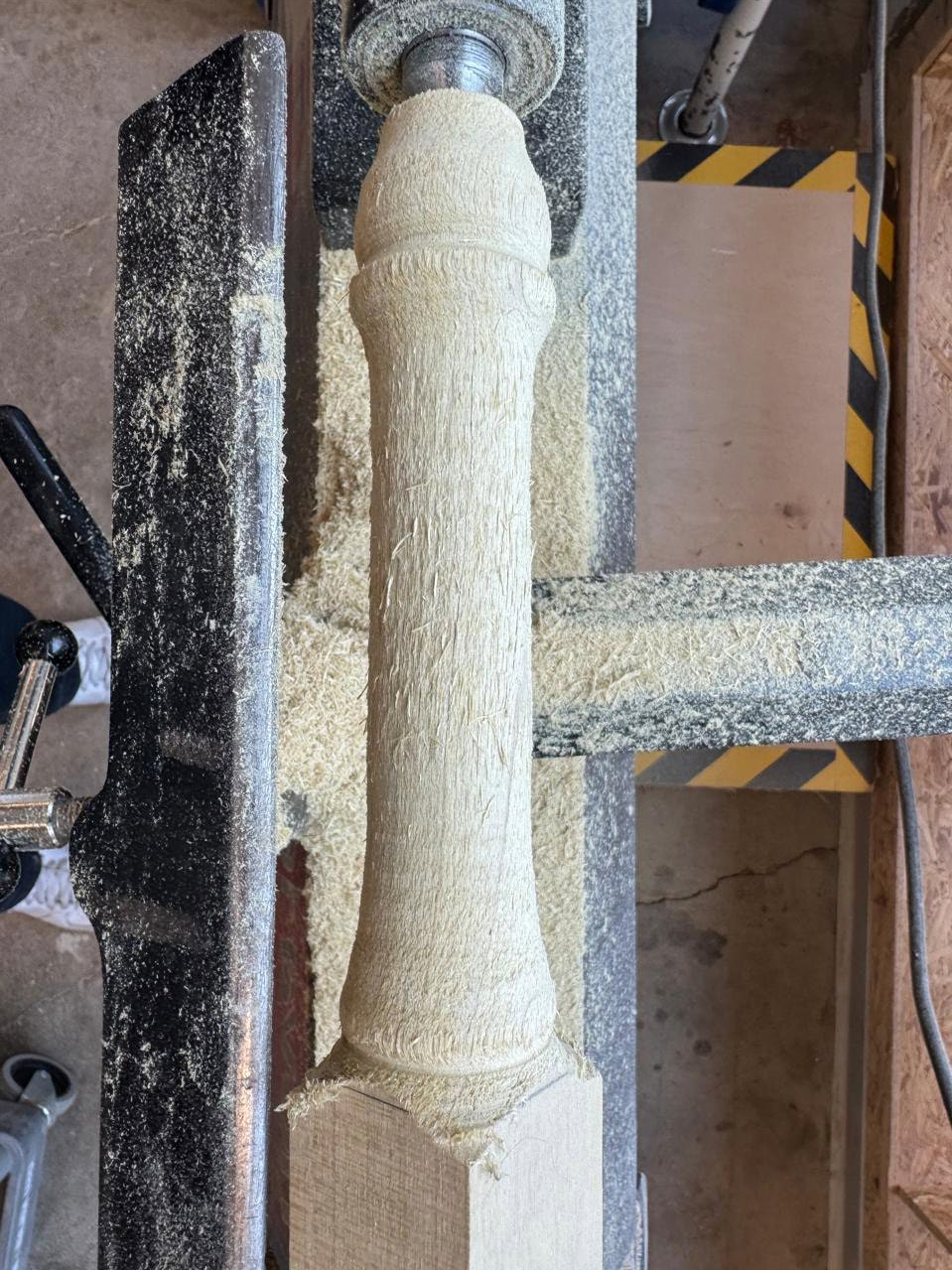
Lathe turning Poplar hardwood (1.5"x1.5")
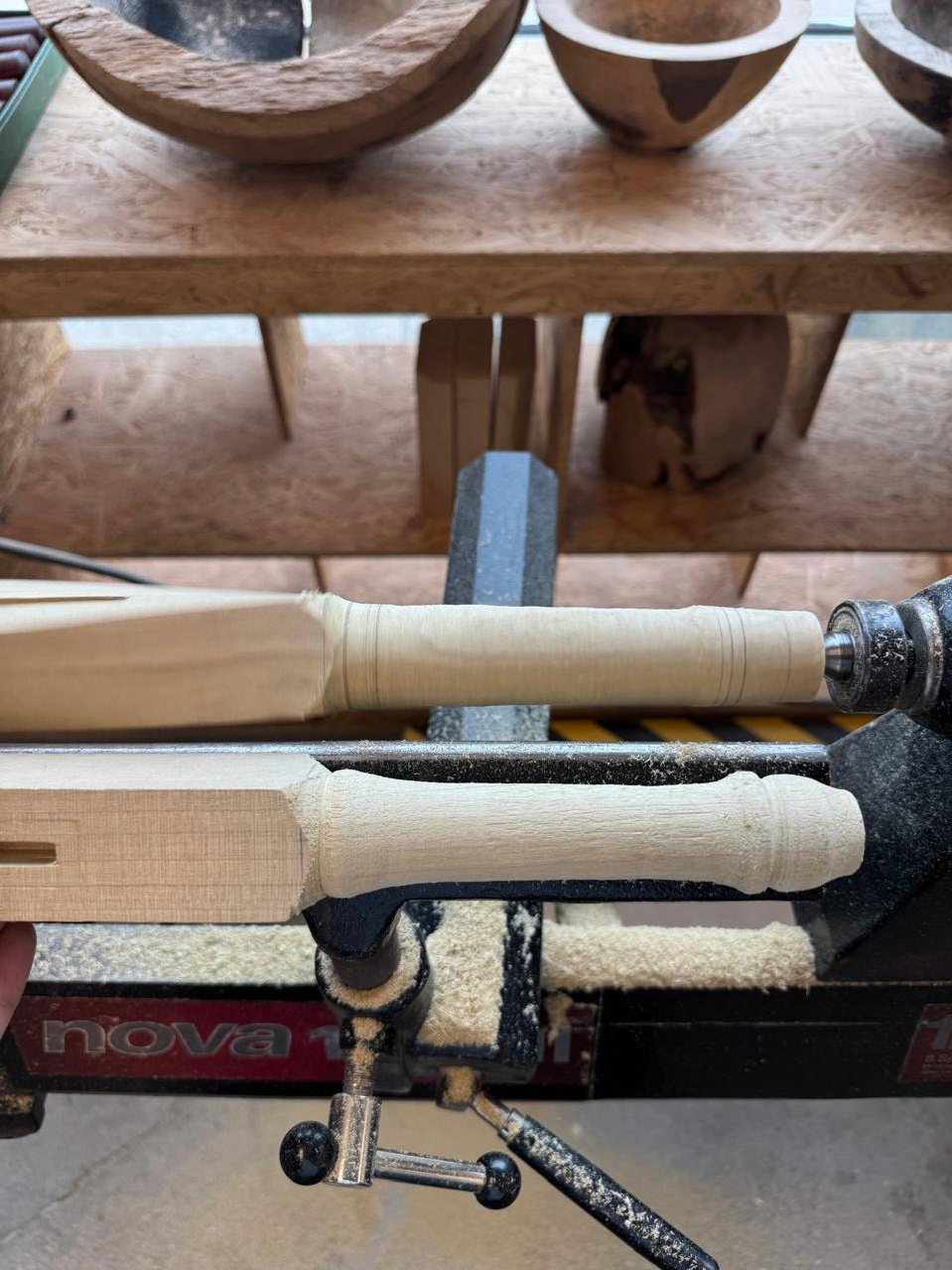
Marking planar changes with led and calipers
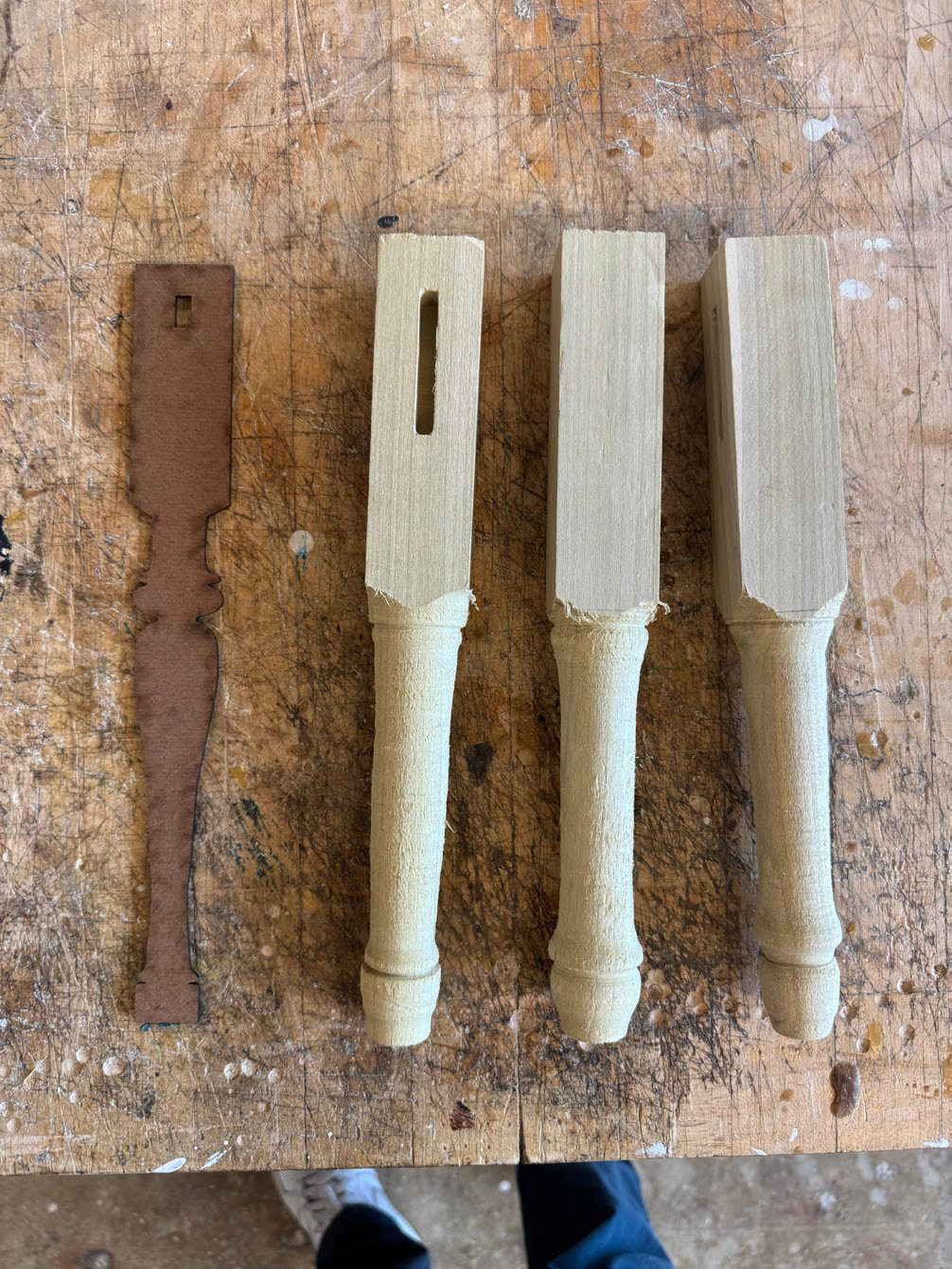
Comparison to first iteration profile
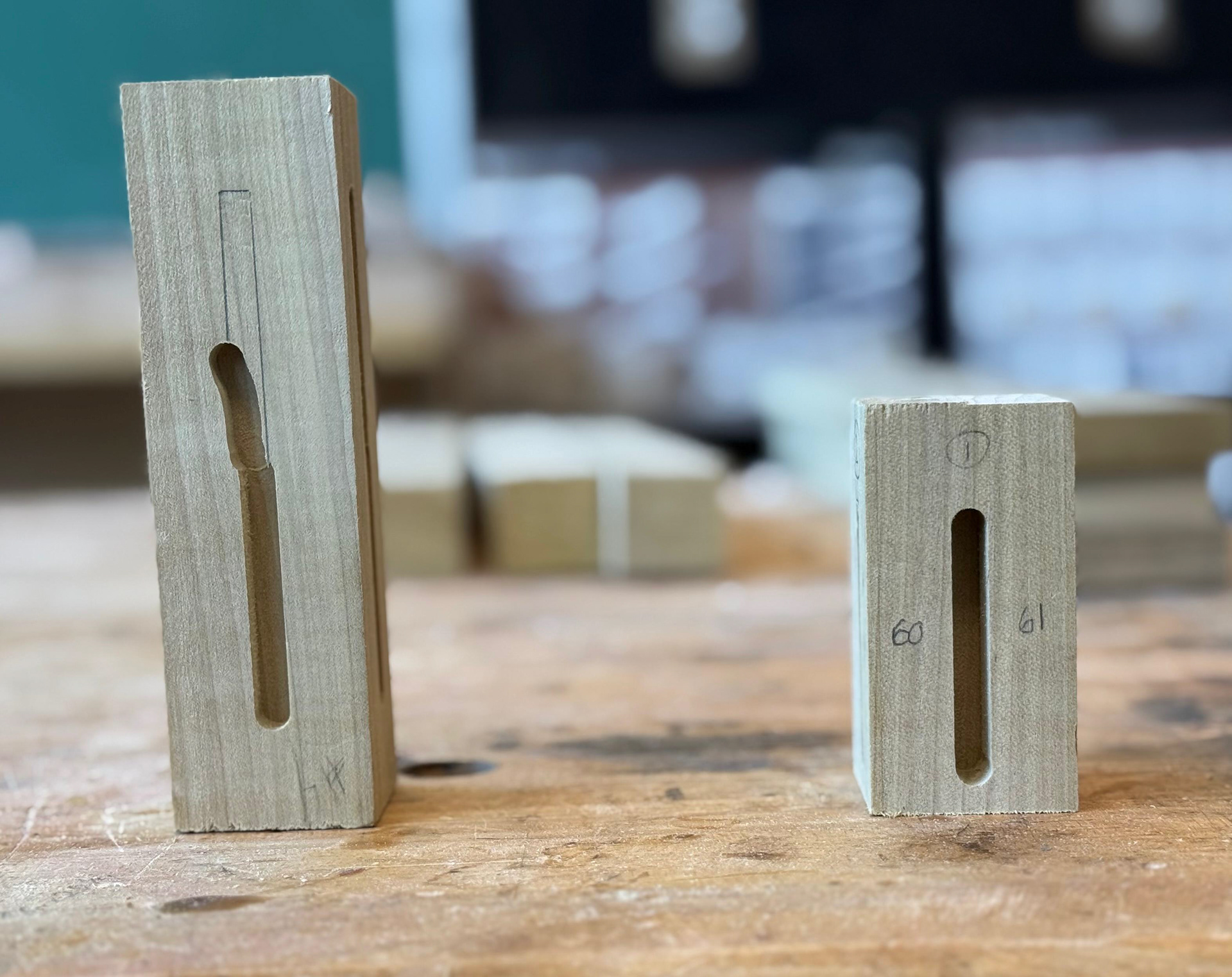
Mortising Practice
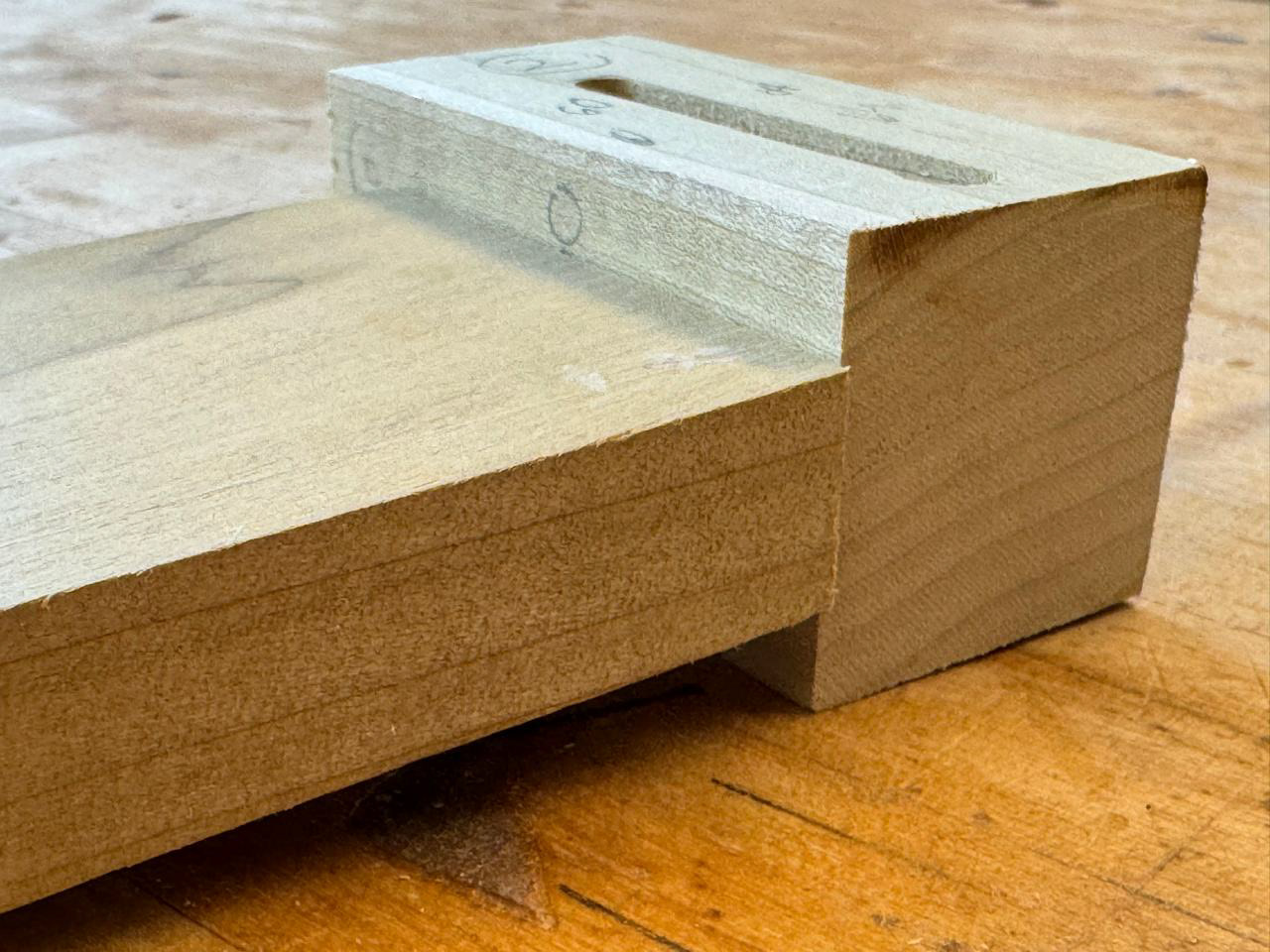
Joining with Tenons
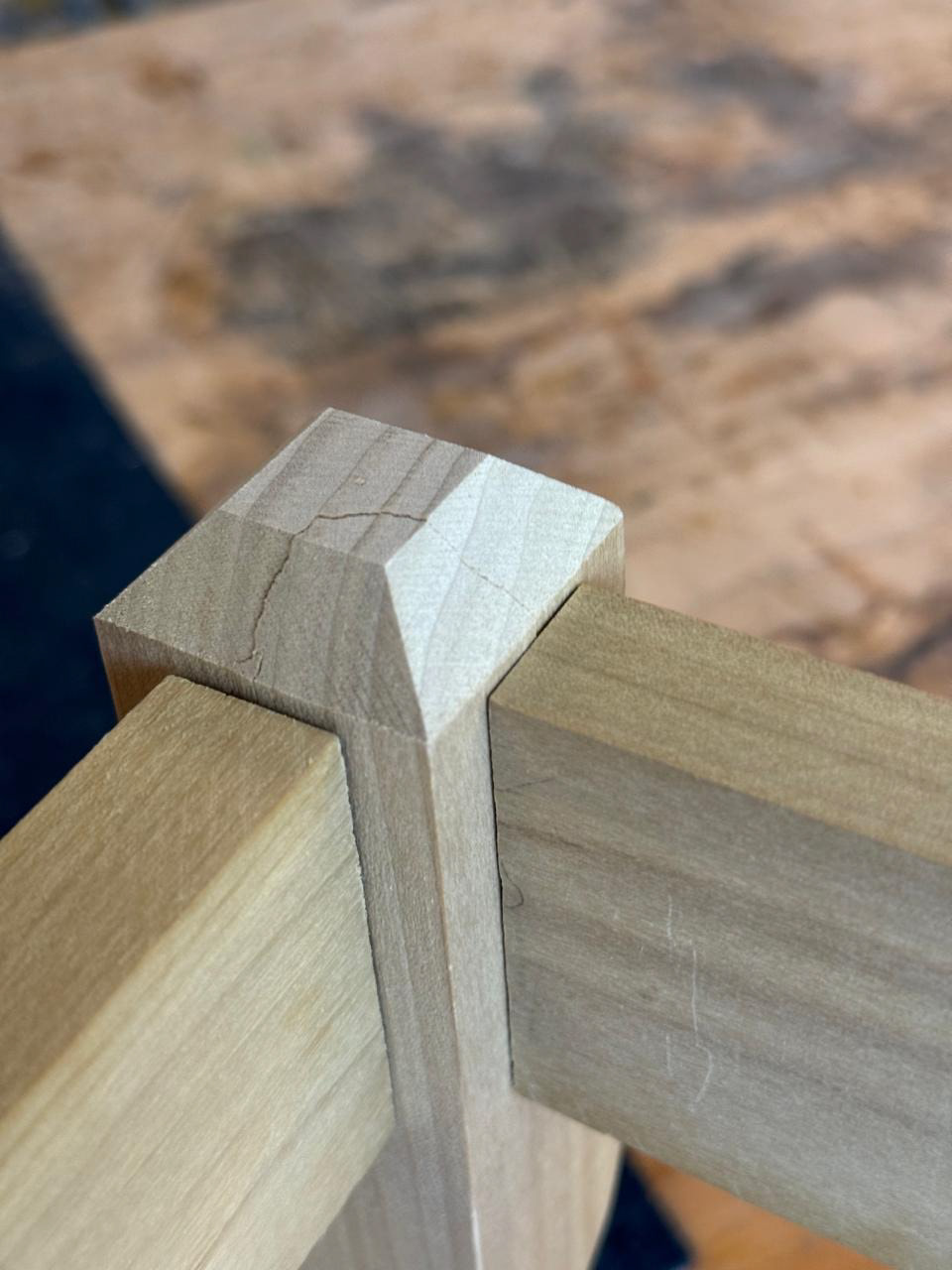
Form compromised by joinery
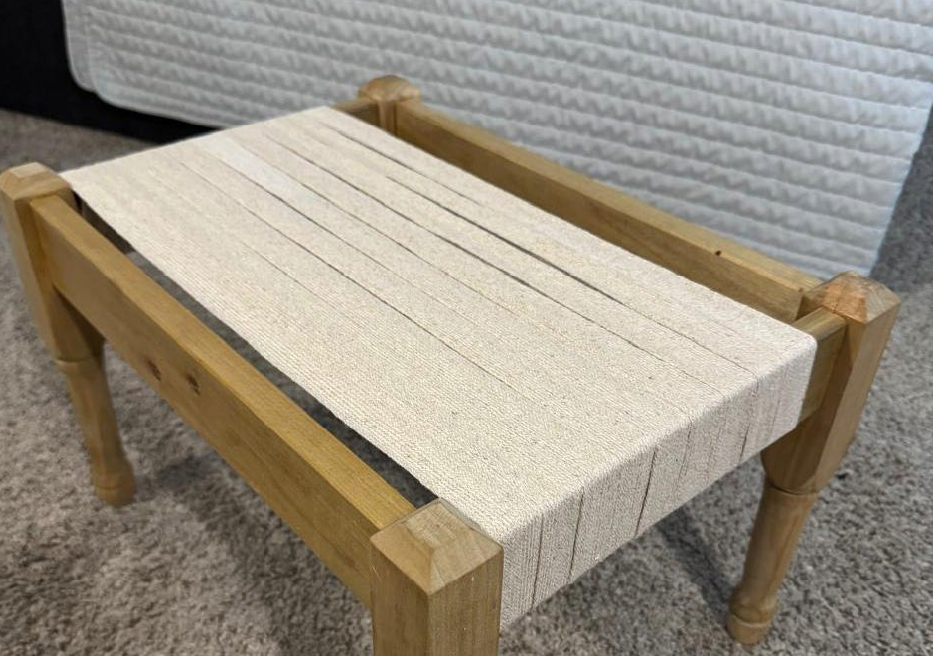
Stapled linen under tension
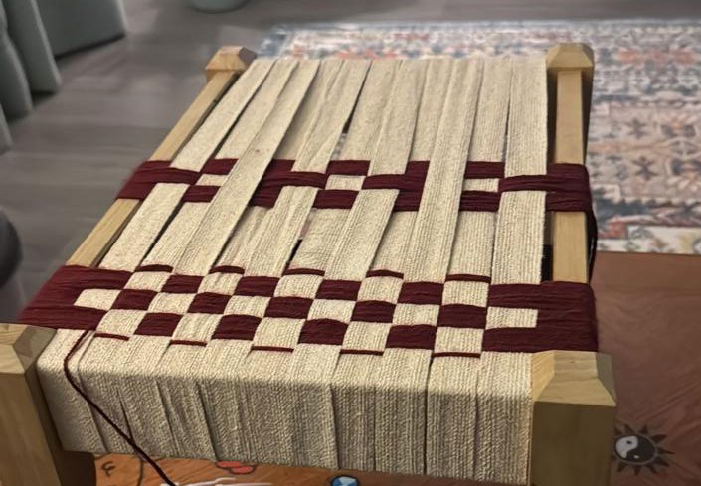
Cross-weaving with burgundy yarn
Final Seat: The Chotpai
The Charpai is a well-established seating/sleeping solution for South Asian cultures. Being a rope-woven cot, it is ventilated, suitable for harsher climates, and can be used to work on, lounge, or sleep. Instead of overdeveloping what already works, I loosely borrowed the form language and development techniques to serve as a relatable seating solution for the working class, particularly house staff.
Chota means "small" in Urdu, Pakistan's national language, and Charpai is the inspiration for this seat; thus, "Chotpai".
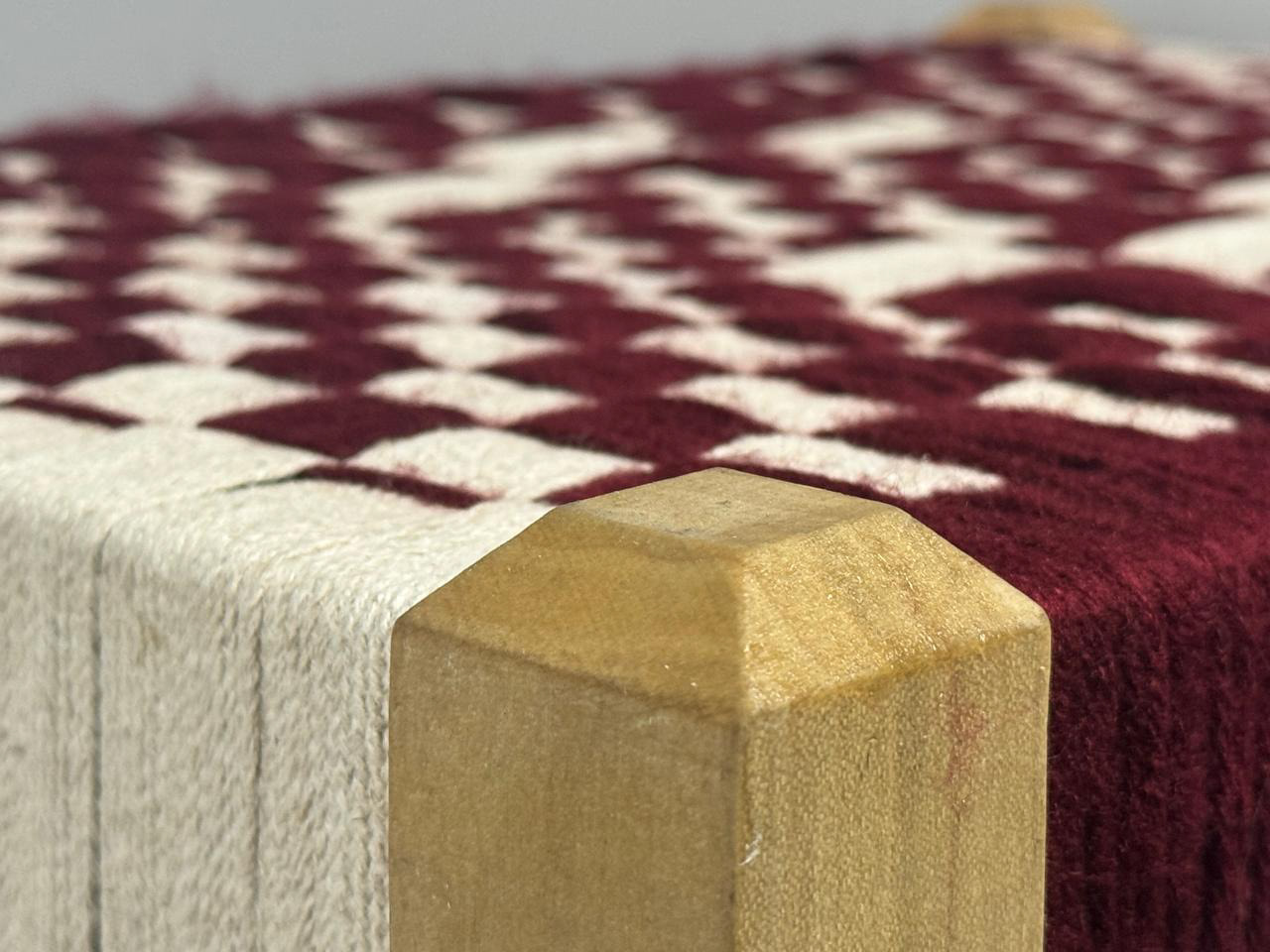
Joinery-Weaving Interface
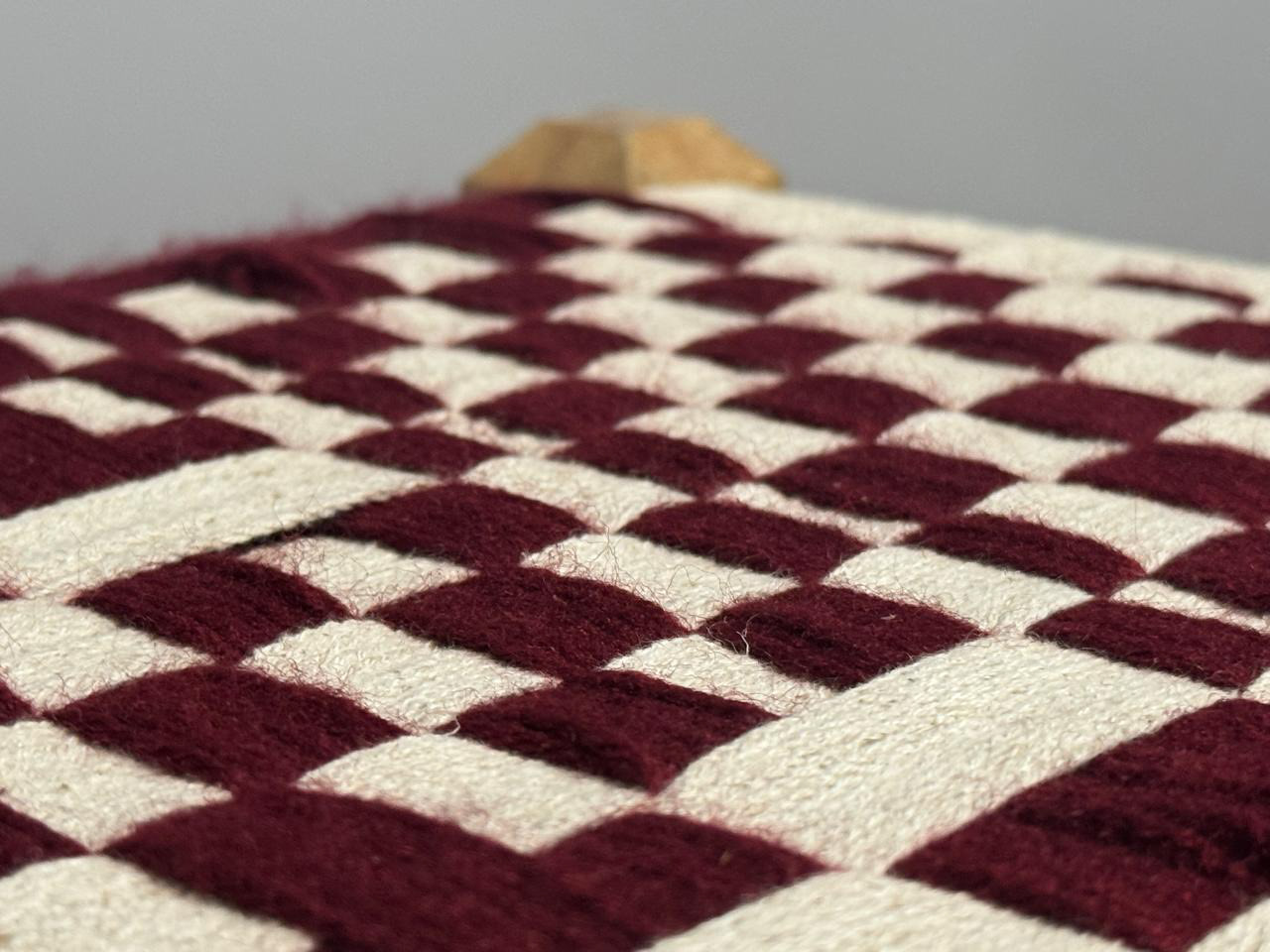
Weaving
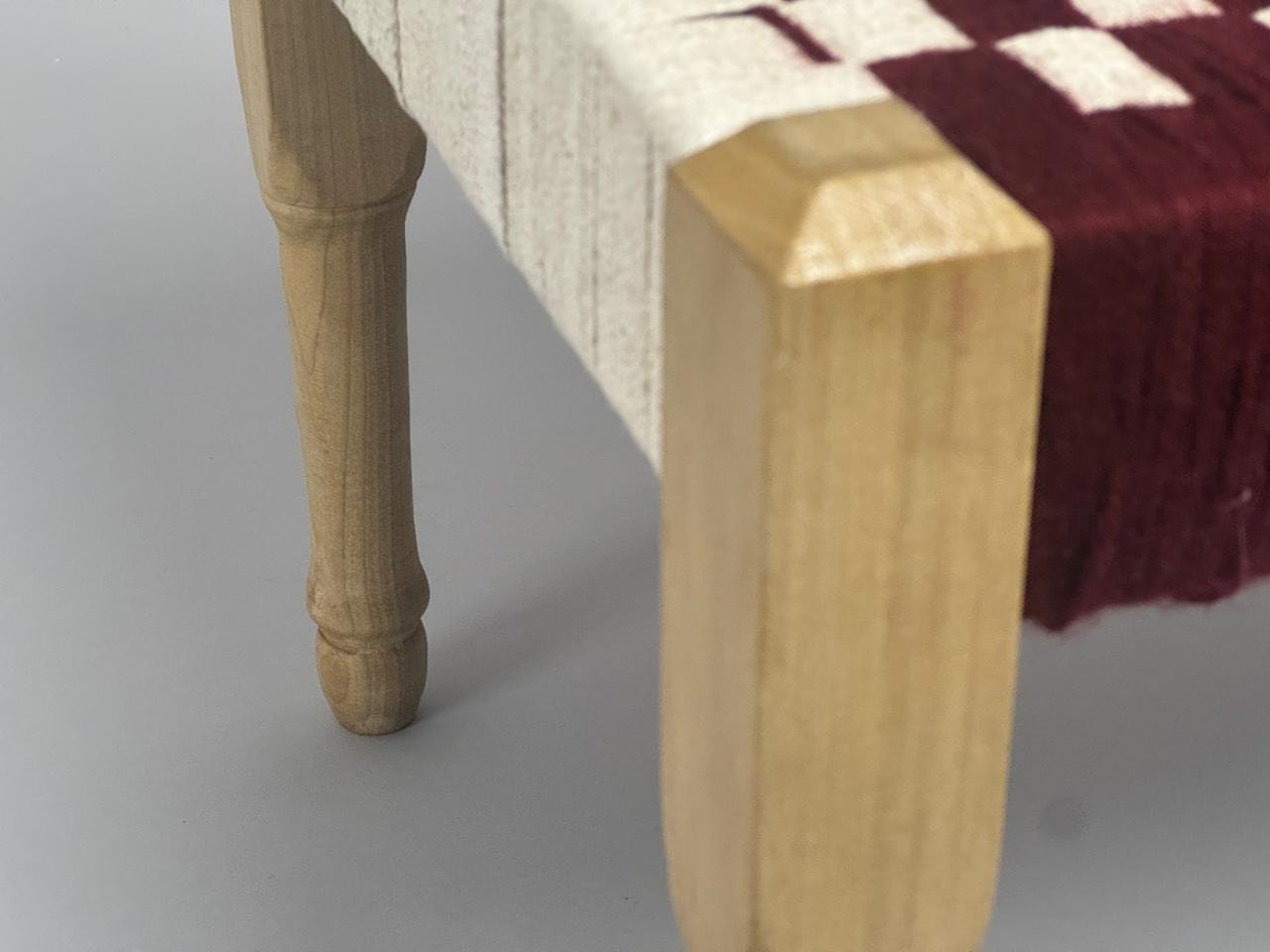
Lathe-Turned Legs
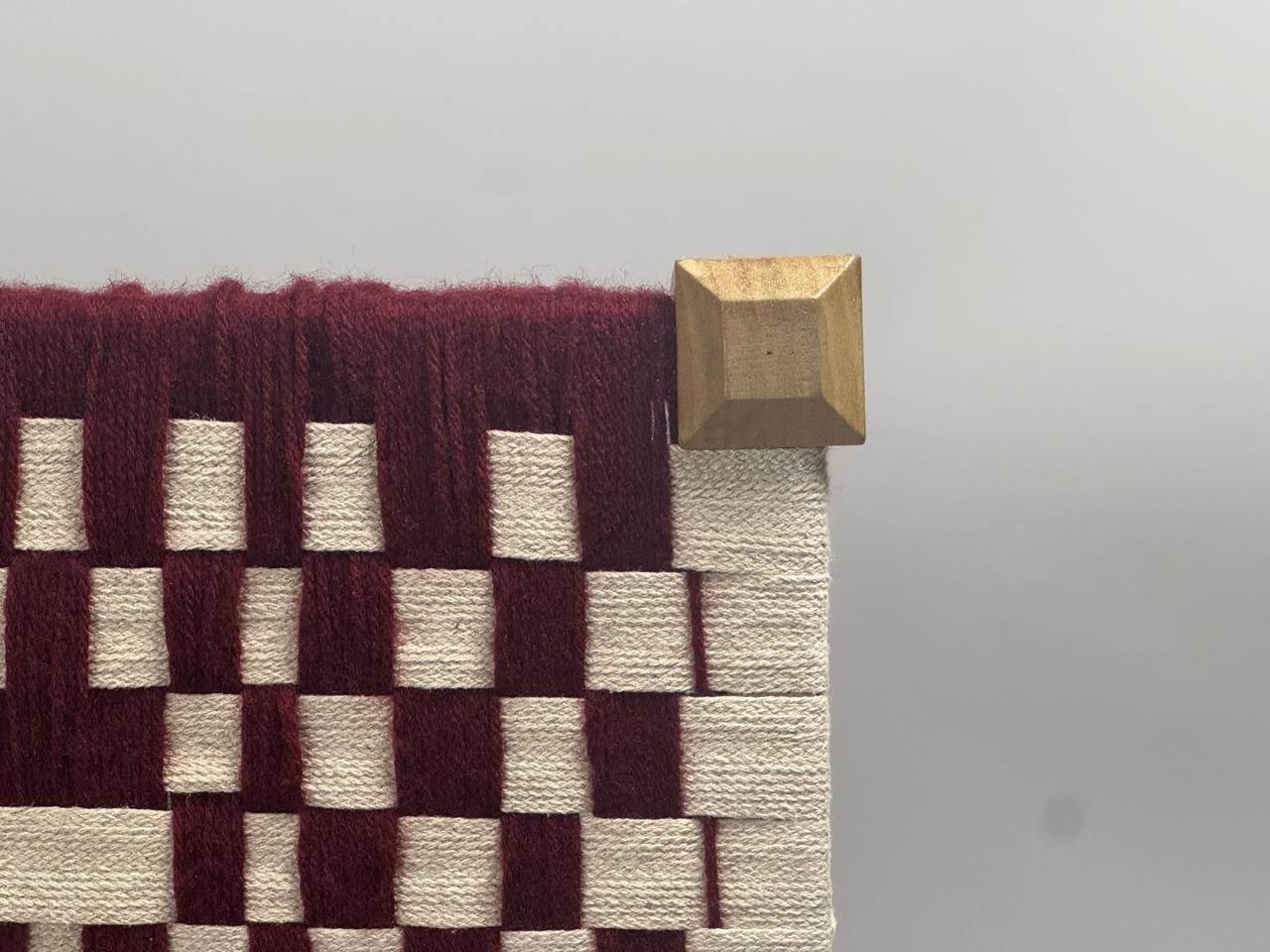
Front View
